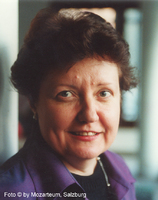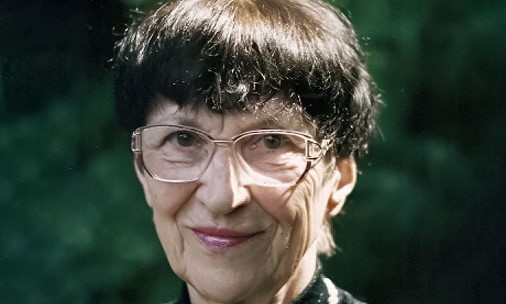Composers
Item set
- Title
- Composers
- Description
- Shining a Light Composers collection
Items
-
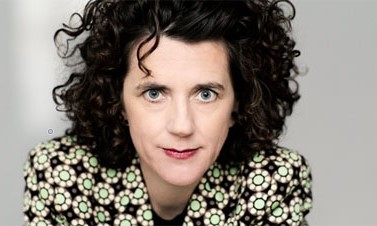 Olga Neuwirth Olga Neuwirth was born in Graz, Austria, in 1968. She studied at the Academy of Music in Vienna and the San Francisco Conservatory of Music. During her stay in the States she also attended an art college, where she studied painting and film. Her private teachers in composition included Adriana Hölszky, Tristan Murail and Luigi Nono. She first burst onto the international scene in 1991, at the age of 22, when two of her mini-operas were performed at the Wiener Festwochen. Ever since her works have been presented worldwide. In 1998 she was featured in two portrait concerts at the Salzburg Festival within the framework of the Next Generation series. The following year, her music theatre work Bahlamms Fest, with a libretto by Elfriede Jelinek, premiered at the Wiener Festwochen and won the Ernst Krenek prize. A year later, she wrote Clinamen/Nodus for Pierre Boulez and the London Symphony Orchestra tour. In 2002 Olga was appointed composer-in–residence at the Lucerne Festival. With Nobel Prize winning novelist Elfriede Jelinek she has created two radio plays and three operas. Her opera Lost Highway, based on the film by David Lynch, premiered in 2003 and won a South Bank Show Award for the production presented by English National Opera at the Young Vic in 2008. Since Olga Neuwirth was a teenager, she has also been interested in film, literature, architecture and the visual arts. Aside from composing, she also realises sound installations, art exhibitions and short films and has written several articles and a book; one of her multi-media installations was presented at the documenta 12 in Kassel in 2007. Olga Neuwirth’s works are multi-layered and multi-sensory. Some pieces also draw on the full range of effects of both electronic and orchestral instruments as well as video, which she began integrating into some of her works in the late 1980’s. The listener is struck by the immediacy of her music, which is often dramatic and expressive as she is particularly interested in emotions and how they relate to the brain and memory. Many recordings of her music have been released on the label Kairos. In 2008 she was awarded the Heidelberg Artist Prize. In 2010, as the first woman ever in the category of music, she received the Grand Austrian State Prize as well as the Louis Spohr Prize of the City of Braunschweig In 2012 Olga Neuwirth completed two new operas while living in NYC: The Outcast on Hermann Melville, and American Lulu, a version of Alban Berg’s Lulu which was premiered in Berlin and subsequently given a new production in Bregenz, Edinburgh and London in 2013 and then in Vienna in 2014. In early 2015 she completed a film score for a silent film and a feature film by Franz/Fiala, and the orchestral work Masaot/Clocks without hands for the Vienna Philharmonic Orchestra. It was premiered in Koeln and Vienna in May and had it’s US premiere in February 2016 at Carnegie Hall under the baton of Valerij Gergjev. At the Salzburg Festival her Eleanor Suite for Bluessinger, drum-kit-player and ensemble was premiered in August 2015. Her 80 minutes electronic/space/ensemble piece Le Encantadas based on the acoustics of a venetian church received its premiere at Donaueschingen and at the Festival d’Automne à Paris with further performances in 2016 and 2017. She received the prestigious Roche Commission for the Lucerne Festival in 2016 for her percussion concerto Trurliade–Zone Zero and was composer-in-residence at the festival for the second time. In march 2017 her 3D sound-installation in collaboration with IRCAM was inaugurated at Centre Pompidou in Paris for it’s 40th anniversary. In 2017 she has collaborated with architect Peter Zumthor and Asymptote Architects. Beside several concerts for her 50th anniversary in 2018, Lost Highway and The Outcast can be seen in new productions. Lost Highway under the direction of Yuval Sharon and The Outcast under Netia Jones. Her new opera Orlando will be premiered at the Wiener Staatsoper in 2019.
Olga Neuwirth Olga Neuwirth was born in Graz, Austria, in 1968. She studied at the Academy of Music in Vienna and the San Francisco Conservatory of Music. During her stay in the States she also attended an art college, where she studied painting and film. Her private teachers in composition included Adriana Hölszky, Tristan Murail and Luigi Nono. She first burst onto the international scene in 1991, at the age of 22, when two of her mini-operas were performed at the Wiener Festwochen. Ever since her works have been presented worldwide. In 1998 she was featured in two portrait concerts at the Salzburg Festival within the framework of the Next Generation series. The following year, her music theatre work Bahlamms Fest, with a libretto by Elfriede Jelinek, premiered at the Wiener Festwochen and won the Ernst Krenek prize. A year later, she wrote Clinamen/Nodus for Pierre Boulez and the London Symphony Orchestra tour. In 2002 Olga was appointed composer-in–residence at the Lucerne Festival. With Nobel Prize winning novelist Elfriede Jelinek she has created two radio plays and three operas. Her opera Lost Highway, based on the film by David Lynch, premiered in 2003 and won a South Bank Show Award for the production presented by English National Opera at the Young Vic in 2008. Since Olga Neuwirth was a teenager, she has also been interested in film, literature, architecture and the visual arts. Aside from composing, she also realises sound installations, art exhibitions and short films and has written several articles and a book; one of her multi-media installations was presented at the documenta 12 in Kassel in 2007. Olga Neuwirth’s works are multi-layered and multi-sensory. Some pieces also draw on the full range of effects of both electronic and orchestral instruments as well as video, which she began integrating into some of her works in the late 1980’s. The listener is struck by the immediacy of her music, which is often dramatic and expressive as she is particularly interested in emotions and how they relate to the brain and memory. Many recordings of her music have been released on the label Kairos. In 2008 she was awarded the Heidelberg Artist Prize. In 2010, as the first woman ever in the category of music, she received the Grand Austrian State Prize as well as the Louis Spohr Prize of the City of Braunschweig In 2012 Olga Neuwirth completed two new operas while living in NYC: The Outcast on Hermann Melville, and American Lulu, a version of Alban Berg’s Lulu which was premiered in Berlin and subsequently given a new production in Bregenz, Edinburgh and London in 2013 and then in Vienna in 2014. In early 2015 she completed a film score for a silent film and a feature film by Franz/Fiala, and the orchestral work Masaot/Clocks without hands for the Vienna Philharmonic Orchestra. It was premiered in Koeln and Vienna in May and had it’s US premiere in February 2016 at Carnegie Hall under the baton of Valerij Gergjev. At the Salzburg Festival her Eleanor Suite for Bluessinger, drum-kit-player and ensemble was premiered in August 2015. Her 80 minutes electronic/space/ensemble piece Le Encantadas based on the acoustics of a venetian church received its premiere at Donaueschingen and at the Festival d’Automne à Paris with further performances in 2016 and 2017. She received the prestigious Roche Commission for the Lucerne Festival in 2016 for her percussion concerto Trurliade–Zone Zero and was composer-in-residence at the festival for the second time. In march 2017 her 3D sound-installation in collaboration with IRCAM was inaugurated at Centre Pompidou in Paris for it’s 40th anniversary. In 2017 she has collaborated with architect Peter Zumthor and Asymptote Architects. Beside several concerts for her 50th anniversary in 2018, Lost Highway and The Outcast can be seen in new productions. Lost Highway under the direction of Yuval Sharon and The Outcast under Netia Jones. Her new opera Orlando will be premiered at the Wiener Staatsoper in 2019. -
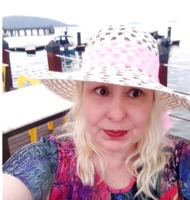 Katia Tiutiunnik Katia Tiutiunnik is a composer and scholar who has studied several languages as an adjunct to her research. Tiutiunnik was the first Australian composer to be appointed visiting scholar at Columbia University, New York. She was also the first Australian to complete a residency at Charles Morrow Productions, New York, where she composed a work for three-dimensional soundcube, presented in Cologne, in November 2005. Most recently, she was a Senior Lecturer in Composition at the Faculty of Music, Universiti Teknologi MARA, Shah Alam, Malaysia, from March 2012 until April 2016 (after which she declined the offer of a further extension to her contract there) and an Honorary Research Associate at Sydney Conservatorium of Music, the University of Sydney, from June 2010 until June 2016. In August 2016, Tiutiunnik was appointed Professor of Music at SIAS University, Xinzheng, Henan Province, China where she worked until embarking on a privately sponsored sabbatical in South East Asia on November 20 2019. Tiutiunnik has been awarded numerous international travel grants, commissions and other sponsorship from the government and private sectors. Tiutiunnik earned her PhD from the Australian National University and was awarded the highest Italian postgraduate diploma from the Accademia Nazionale di Santa Cecilia, Rome, where she studied with Franco Donatoni. She obtained her BMus from Sydney Conservatorium, where she was awarded all three of their composition prizes. In December 2009, Tiutiunnik's PhD dissertation was published and released internationally. Besides Franco Donatoni, Tiutiunnik's former composition teachers include Michael Smetanin, Larry Sitsky, Gillian Whitehead, Bozidar Kos and Richard Toop.
Katia Tiutiunnik Katia Tiutiunnik is a composer and scholar who has studied several languages as an adjunct to her research. Tiutiunnik was the first Australian composer to be appointed visiting scholar at Columbia University, New York. She was also the first Australian to complete a residency at Charles Morrow Productions, New York, where she composed a work for three-dimensional soundcube, presented in Cologne, in November 2005. Most recently, she was a Senior Lecturer in Composition at the Faculty of Music, Universiti Teknologi MARA, Shah Alam, Malaysia, from March 2012 until April 2016 (after which she declined the offer of a further extension to her contract there) and an Honorary Research Associate at Sydney Conservatorium of Music, the University of Sydney, from June 2010 until June 2016. In August 2016, Tiutiunnik was appointed Professor of Music at SIAS University, Xinzheng, Henan Province, China where she worked until embarking on a privately sponsored sabbatical in South East Asia on November 20 2019. Tiutiunnik has been awarded numerous international travel grants, commissions and other sponsorship from the government and private sectors. Tiutiunnik earned her PhD from the Australian National University and was awarded the highest Italian postgraduate diploma from the Accademia Nazionale di Santa Cecilia, Rome, where she studied with Franco Donatoni. She obtained her BMus from Sydney Conservatorium, where she was awarded all three of their composition prizes. In December 2009, Tiutiunnik's PhD dissertation was published and released internationally. Besides Franco Donatoni, Tiutiunnik's former composition teachers include Michael Smetanin, Larry Sitsky, Gillian Whitehead, Bozidar Kos and Richard Toop. -
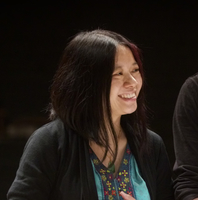 Liza Lim Liza Lim is an Australian composer whose music focusses on collaborative and transcultural practices. Ideas of beauty, ecological connection and ritual transformation are ongoing concerns in her compositional work. Her four operas: The Oresteia (1993), Moon Spirit Feasting (2000), The Navigator (2007) and Tree of Codes (2016), and the major ensemble work Extinction Events and Dawn Chorus (2018) explore themes of desire, memory, and the uncanny. Her genre-crossing percussion ritual/opera Atlas of the Sky (2018), is a work involving community participants that celebrates the emotional power and energy dynamics of crowds. Liza Lim has received commissions from some of the world’s pre-eminent orchestras and ensembles including the Los Angeles Philharmonic, Bavarian Radio Orchestra, Ensemble Musikfabrik, ELISION, Ensemble Intercontemporain, Ensemble Modern, Klangforum Wien, International Contemporary Ensemble and Arditti String Quartet. She was Resident Composer with the Sydney Symphony Orchestra in 2005 & 2006. Her orchestral cycle Annunciation Triptych (2019-21) is jointly commissioned by the BBC SSO, Bavarian Radio Orchestra, Westdeutscher Rundfunk orchestra and Orchestre de la Philharmonie de Luxemburg. Other projects include Sex Magic (2020), for flautist Claire Chase, and quartets for Sigma Projects and JACK Quartet. Her music has been featured at the Spoleto Festival, Miller Theatre New York, Festival d’Automne à Paris, Venice Biennale and at all the major Australian festivals. Lim is Professor of Composition and inaugural Sculthorpe Chair of Australian Music at the Sydney Conservatorium of Music. Her music is published by Casa Ricordi Berlin and on CD labels Kairos, Hat Art, HCR and Winter & Winter.
Liza Lim Liza Lim is an Australian composer whose music focusses on collaborative and transcultural practices. Ideas of beauty, ecological connection and ritual transformation are ongoing concerns in her compositional work. Her four operas: The Oresteia (1993), Moon Spirit Feasting (2000), The Navigator (2007) and Tree of Codes (2016), and the major ensemble work Extinction Events and Dawn Chorus (2018) explore themes of desire, memory, and the uncanny. Her genre-crossing percussion ritual/opera Atlas of the Sky (2018), is a work involving community participants that celebrates the emotional power and energy dynamics of crowds. Liza Lim has received commissions from some of the world’s pre-eminent orchestras and ensembles including the Los Angeles Philharmonic, Bavarian Radio Orchestra, Ensemble Musikfabrik, ELISION, Ensemble Intercontemporain, Ensemble Modern, Klangforum Wien, International Contemporary Ensemble and Arditti String Quartet. She was Resident Composer with the Sydney Symphony Orchestra in 2005 & 2006. Her orchestral cycle Annunciation Triptych (2019-21) is jointly commissioned by the BBC SSO, Bavarian Radio Orchestra, Westdeutscher Rundfunk orchestra and Orchestre de la Philharmonie de Luxemburg. Other projects include Sex Magic (2020), for flautist Claire Chase, and quartets for Sigma Projects and JACK Quartet. Her music has been featured at the Spoleto Festival, Miller Theatre New York, Festival d’Automne à Paris, Venice Biennale and at all the major Australian festivals. Lim is Professor of Composition and inaugural Sculthorpe Chair of Australian Music at the Sydney Conservatorium of Music. Her music is published by Casa Ricordi Berlin and on CD labels Kairos, Hat Art, HCR and Winter & Winter. -
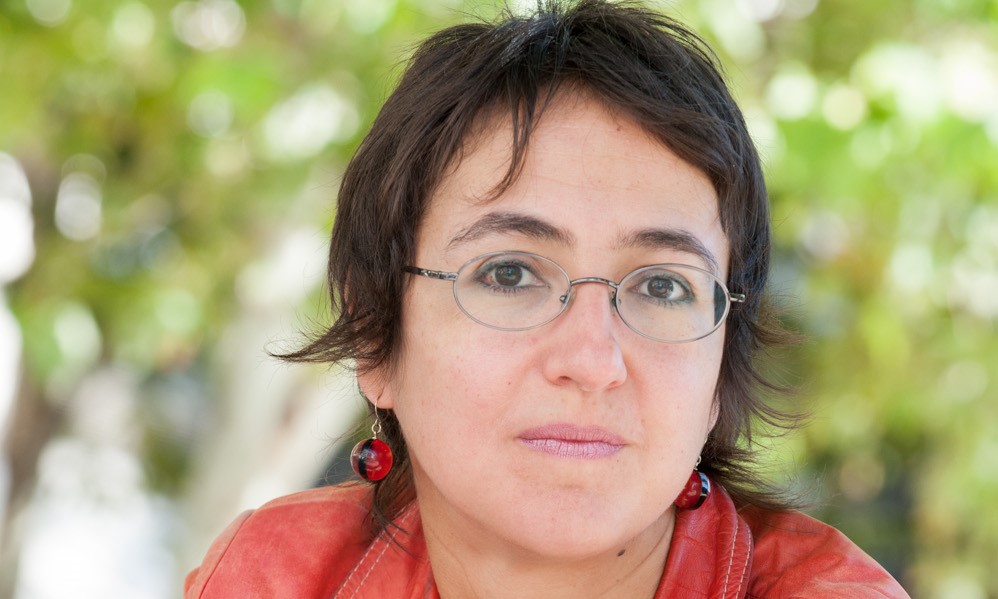 Elena Mendoza Elena Mendoza was born in Sevilla in 1973, whre she studied german linguistics. She then studied piano and composition in Zaragoza with Teresa Catalán, in Augsburg with John Van Buren, in Düsseldorf with Manfred Trojahn and in Berlin with Hanns Peter Kyburz at the Hochschule für Musik Hanns Eisler. After finishing studies she was a fellow at different institutions, like Ensemble Modern Akademie in Frankfurt a.M., among others. Currently she lives in Berlin, where she is composition Professor at the Universität der Künste. She is particularly interested in timbrical and dramaturgical questions and has particular preferences for theatrical concepts touching on language, space and music. From these emerged in 2007 the music-theater production Niebla (Europäisches Zentrum der Künste in Dresden Hellerau), written in close cooperation with the director Matthias Rebstock and setting new music-theatre standards. On behalf of Gerard Mortier they also created La ciudad de las mentiras, based on textes by Juan Carlos Onetti, for the Teatro Real Madrid. Their most recent project in common, Der Fall Babel, a commission from Schwetzinger Festspiele, was premiered in April 2019 with great succes. She has worked in collaboration with ensemble recherche, Klangforum Wien, Ensemble Modern, Neue Vokalsolisten Stuttgart, Schola Heidelberg, Ensemble Mosaik, Ensemble emex, Ensemble Taller Sonoro, Ensemble Ascolta, KNM Berlin, Ensemble espai sonor, Vogler-Quartett, WDR Sinfonieorchester, Oper Nürnberg, Philharmonisches Orchester Freiburg, Orquesta Sinfónica de Madrid, Real Orquesta sinfónica de Sevilla and many others. Her music has been presented at several international festivals, such as Ars Musica Brussels, Eclat Stuttgart, Maerzmusik Berlin, Dresdner Tage der Zeitgenössischer Musik, Wittener Tage für neue Kammermusik, Ultraschall Berlin, World New Music Festival, Acanthes Metz, Nous Sons Barcelona, Steirischer Herbst Graz, Musica Viva München or musicadhoy Madrid. She has won several important awards, such as a fellowship at the Academy Schloß Solitude (2008), the Musikpreis Salzburg 2011 (Förderungspreis), the spanisch Premio Nacional de Música 2010, the Kunstpreis Berlin 2017 or recently the Heidelberger Künstlerinnenpreis 2019. A portrait CD with chamber music has been published in 2008 by the label Kairos (Vienna), in colaboration with musicadhoy (Madrid) and Deutschlandradio Kultur (Berlin). Besides, a CD with scenes from Niebla and other vocal chamber music pieces been published by Wergo, Deutschlandradio Kultur and Deutscher Musikrat in 2011. From 2009 on her scores are published by Edition Peters.
Elena Mendoza Elena Mendoza was born in Sevilla in 1973, whre she studied german linguistics. She then studied piano and composition in Zaragoza with Teresa Catalán, in Augsburg with John Van Buren, in Düsseldorf with Manfred Trojahn and in Berlin with Hanns Peter Kyburz at the Hochschule für Musik Hanns Eisler. After finishing studies she was a fellow at different institutions, like Ensemble Modern Akademie in Frankfurt a.M., among others. Currently she lives in Berlin, where she is composition Professor at the Universität der Künste. She is particularly interested in timbrical and dramaturgical questions and has particular preferences for theatrical concepts touching on language, space and music. From these emerged in 2007 the music-theater production Niebla (Europäisches Zentrum der Künste in Dresden Hellerau), written in close cooperation with the director Matthias Rebstock and setting new music-theatre standards. On behalf of Gerard Mortier they also created La ciudad de las mentiras, based on textes by Juan Carlos Onetti, for the Teatro Real Madrid. Their most recent project in common, Der Fall Babel, a commission from Schwetzinger Festspiele, was premiered in April 2019 with great succes. She has worked in collaboration with ensemble recherche, Klangforum Wien, Ensemble Modern, Neue Vokalsolisten Stuttgart, Schola Heidelberg, Ensemble Mosaik, Ensemble emex, Ensemble Taller Sonoro, Ensemble Ascolta, KNM Berlin, Ensemble espai sonor, Vogler-Quartett, WDR Sinfonieorchester, Oper Nürnberg, Philharmonisches Orchester Freiburg, Orquesta Sinfónica de Madrid, Real Orquesta sinfónica de Sevilla and many others. Her music has been presented at several international festivals, such as Ars Musica Brussels, Eclat Stuttgart, Maerzmusik Berlin, Dresdner Tage der Zeitgenössischer Musik, Wittener Tage für neue Kammermusik, Ultraschall Berlin, World New Music Festival, Acanthes Metz, Nous Sons Barcelona, Steirischer Herbst Graz, Musica Viva München or musicadhoy Madrid. She has won several important awards, such as a fellowship at the Academy Schloß Solitude (2008), the Musikpreis Salzburg 2011 (Förderungspreis), the spanisch Premio Nacional de Música 2010, the Kunstpreis Berlin 2017 or recently the Heidelberger Künstlerinnenpreis 2019. A portrait CD with chamber music has been published in 2008 by the label Kairos (Vienna), in colaboration with musicadhoy (Madrid) and Deutschlandradio Kultur (Berlin). Besides, a CD with scenes from Niebla and other vocal chamber music pieces been published by Wergo, Deutschlandradio Kultur and Deutscher Musikrat in 2011. From 2009 on her scores are published by Edition Peters. -
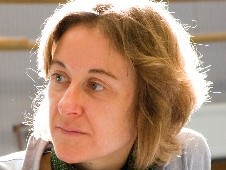 Isabel Mundry Isabel Mundry's work is characterized by a unique sonic language that investigates the relationships between time, space, and perception in rich, multi-faceted ways. In doing so, she creates new pathways and different realities in her compositions, which are explored through the timbre, harmony and rhythms of her nuanced music. Born in Hesse in 1963 and raised in Berlin, Isabel Mundry honed her composition skills under Frank Michael Beyer, Gösta Neuwirth and Hans Zender, among others. This training was complemented by studies in musicology, art history and philosophy, as well as a course in computer science and composition at the Paris IRCAM. After gaining attention in the 90s for her chamber music compositions and ensemble and orchestral works, her first music theater work was a resounding success: in 2005, the premiere of Ein Atemzug - die Odyssee at the Deutsche Oper Berlin (Reinhild Hoffmann, staging; musical direction, Peter Rundel), was named best premiered work of the year by the magazine Opernwelt. In the work, the composer deals with layers of remembering and forgetting. Isabel Mundry’s interest in fusing musical structure to spatial presentation continued with Nicht Ich – über das Marionettentheater, a concert staged and conceived with the dancer and choreographer Jörg Weinöhl; it premiered in 2011 at the Kleistfestival in Thun in a performance by the Ensemble Recherche and the Vokalensemble Zürich and was subsequently shown in Zurich, Basel, Lyon, Dusseldorf and Salzburg. Isabel Mundry's numerous works for solo instruments and orchestras include Nocturno, first performed in 2006 by the Chicago Symphony Orchestra under Daniel Barenboim and later interpreted by the Staatskapelle Berlin and Dresden, the RSO Vienna and the Hamburg Philharmonic. Her piano concerto Ich und Du, which premiered at the Donaueschinger Musiktage 2008 with the SWR Symphony Orchestra under Pierre Boulez, later expanded into Non-Places, a piano concerto. For the 2013 Happy New Ears Prize award ceremony the work was premiered by Isabel Mundry with the Symphonieorchester des Bayerischen Rundfunks under Emilio Pomarico and subsequently awarded the German Music Authors' Prize by GEMA. Among the world premieres of recent years are works of various genres with diverse sources of inspiration: in Vogelperspektiven for ensemble (world premiere 2016, Symphonieorchester des Bayerischen Rundfunks), inspired by poems by Thomas Kling, Isabel Mundry gives life to the changing perspectives of the human and animal worlds. Zu Fall, premiered by Tonhalle Orchester Zürich 2016, investigates the relationship between activity and passivity and features onstage as a shadow play a chaotically oscillating pendulum, which conducts the conductor as it pendulates. In Sounds, Archeologies, premiered in 2018 by Trio Catch as part of the Berlin Ultrasound Festival, she questions the proximity and distance of historical objects and cultural identities. And in the a-cappella choral piece Mouhanad, based on an interview with a Syrian refugee and premiered in Donaueschingen by the SWR Vocal Ensemble in 2018, cultural resonances and new acoustic neighborhoods are examined. Summer 2019 finds Isabel Mundry in residence as a fellow of the Civitella Ranieri Foundation in Umbria. Several major world premieres are currently in the works: a composition for percussion and ensemble will be featured in February 2020 both at the closing concert of the Présences Festival with the Ensemble intercontemporain and in Cologne with the Ensemble Musikfabrik. For the closing concert of the 2019/20 season, the Pierre Boulez Saal in Berlin commissioned Isabel Mundry to compose a work for the Boulez Ensemble. And a new Viola Concerto for Nils Mönkemeyer will be premiered in summer 2020 with the Tokyo Symphony Orchestra under the direction of Michael Wendeberg at the Suntory Festival. Isabel Mundry's numerous awards and honors include the Kranichstein Music Prize in 1996, a 2001 Ernst von Siemens Music Foundation Award and the 2011 Heidelberg Artists' Prize. In 2007/08 she was the Staatskapelle Dresden’s first composer-in-residence. Isabel Mundry is a member of the Academy of the Arts in Berlin and Munich as well as the Academy of Sciences and Literature in Mainz. Since 1998 she has often been a lecturer at the Darmstadt Summer Courses. After holding a professorship at the Frankfurt University of Music and Performing Arts from 1996, she has been a professor of composition at the Zurich University of the Arts since 2004 and, since 2011, a professor at the University of Music and Performing Arts Munich.
Isabel Mundry Isabel Mundry's work is characterized by a unique sonic language that investigates the relationships between time, space, and perception in rich, multi-faceted ways. In doing so, she creates new pathways and different realities in her compositions, which are explored through the timbre, harmony and rhythms of her nuanced music. Born in Hesse in 1963 and raised in Berlin, Isabel Mundry honed her composition skills under Frank Michael Beyer, Gösta Neuwirth and Hans Zender, among others. This training was complemented by studies in musicology, art history and philosophy, as well as a course in computer science and composition at the Paris IRCAM. After gaining attention in the 90s for her chamber music compositions and ensemble and orchestral works, her first music theater work was a resounding success: in 2005, the premiere of Ein Atemzug - die Odyssee at the Deutsche Oper Berlin (Reinhild Hoffmann, staging; musical direction, Peter Rundel), was named best premiered work of the year by the magazine Opernwelt. In the work, the composer deals with layers of remembering and forgetting. Isabel Mundry’s interest in fusing musical structure to spatial presentation continued with Nicht Ich – über das Marionettentheater, a concert staged and conceived with the dancer and choreographer Jörg Weinöhl; it premiered in 2011 at the Kleistfestival in Thun in a performance by the Ensemble Recherche and the Vokalensemble Zürich and was subsequently shown in Zurich, Basel, Lyon, Dusseldorf and Salzburg. Isabel Mundry's numerous works for solo instruments and orchestras include Nocturno, first performed in 2006 by the Chicago Symphony Orchestra under Daniel Barenboim and later interpreted by the Staatskapelle Berlin and Dresden, the RSO Vienna and the Hamburg Philharmonic. Her piano concerto Ich und Du, which premiered at the Donaueschinger Musiktage 2008 with the SWR Symphony Orchestra under Pierre Boulez, later expanded into Non-Places, a piano concerto. For the 2013 Happy New Ears Prize award ceremony the work was premiered by Isabel Mundry with the Symphonieorchester des Bayerischen Rundfunks under Emilio Pomarico and subsequently awarded the German Music Authors' Prize by GEMA. Among the world premieres of recent years are works of various genres with diverse sources of inspiration: in Vogelperspektiven for ensemble (world premiere 2016, Symphonieorchester des Bayerischen Rundfunks), inspired by poems by Thomas Kling, Isabel Mundry gives life to the changing perspectives of the human and animal worlds. Zu Fall, premiered by Tonhalle Orchester Zürich 2016, investigates the relationship between activity and passivity and features onstage as a shadow play a chaotically oscillating pendulum, which conducts the conductor as it pendulates. In Sounds, Archeologies, premiered in 2018 by Trio Catch as part of the Berlin Ultrasound Festival, she questions the proximity and distance of historical objects and cultural identities. And in the a-cappella choral piece Mouhanad, based on an interview with a Syrian refugee and premiered in Donaueschingen by the SWR Vocal Ensemble in 2018, cultural resonances and new acoustic neighborhoods are examined. Summer 2019 finds Isabel Mundry in residence as a fellow of the Civitella Ranieri Foundation in Umbria. Several major world premieres are currently in the works: a composition for percussion and ensemble will be featured in February 2020 both at the closing concert of the Présences Festival with the Ensemble intercontemporain and in Cologne with the Ensemble Musikfabrik. For the closing concert of the 2019/20 season, the Pierre Boulez Saal in Berlin commissioned Isabel Mundry to compose a work for the Boulez Ensemble. And a new Viola Concerto for Nils Mönkemeyer will be premiered in summer 2020 with the Tokyo Symphony Orchestra under the direction of Michael Wendeberg at the Suntory Festival. Isabel Mundry's numerous awards and honors include the Kranichstein Music Prize in 1996, a 2001 Ernst von Siemens Music Foundation Award and the 2011 Heidelberg Artists' Prize. In 2007/08 she was the Staatskapelle Dresden’s first composer-in-residence. Isabel Mundry is a member of the Academy of the Arts in Berlin and Munich as well as the Academy of Sciences and Literature in Mainz. Since 1998 she has often been a lecturer at the Darmstadt Summer Courses. After holding a professorship at the Frankfurt University of Music and Performing Arts from 1996, she has been a professor of composition at the Zurich University of the Arts since 2004 and, since 2011, a professor at the University of Music and Performing Arts Munich. -
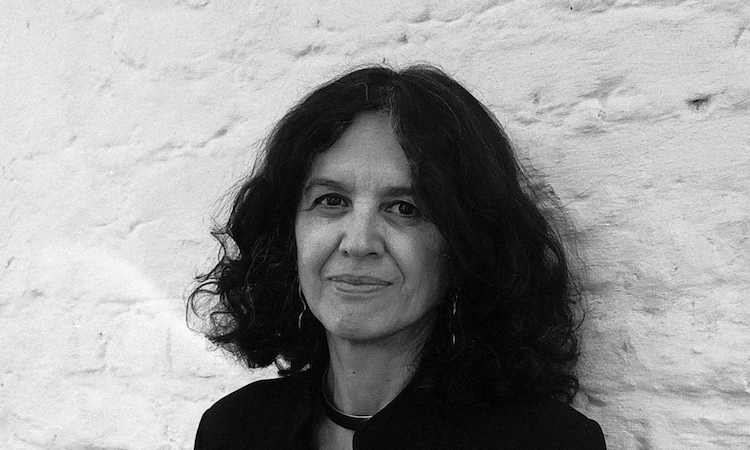 Hilda Paredes Firmly established as one of the leading Mexican composers of her generation, she has made her home in London since 1979 and her music is now performed widely around the world. As an active participant in master classes at Dartington Summer School, studied with Peter Maxwell Davies, Harrison Birtwistle and Richard Rodney Bennett. After graduating at the Guildhall School of Music, she obtained her Master of Arts at City University in London and completed her PhD at Manchester University. She continues to be involved in the musical life of her native country, having taught at the University in Mexico City and several other music institutions and was also a radio producer of new music. She has been recipient of important awards, such as the Arts Council of Great Britain fellowship for composers; the Rockefeller, Fund for Culture Mexico/USA and the J.S. Guggenheim Fellowship in the USA and is currently beneficiary of the Sistema Nacional de Creadores, (FONCA) in Mexico. As a freelance lecturer, Hilda has taught composition and lectured at Manchester University, the University of San Diego California, University of Buffalo and other prestigious Universities in the US, at Centre Acanthes in France and in 2007 was appointed the Darius Milhuad Visiting Professor at Mills College in the US. In 2011, she has been visiting professor at the Escola Superior de Música de Catalunya en Barcelona. Her works are published by University of York Music Press: www.uymp.co.uk Hilda Paredes has been commissioned by soloists, ensembles and orchestras around the world. Her music has been performed by internationally renowned ensembles such as Trio Arbós, Arditti Quartet, Aventure, Court Circuit, Ensemble Modern, Ensemble Recherche, Ensemble Signal, Ensamble Sospeso, Grup Instrumental de Valencia, London Sinfonietta, Lontano, The New Julliard Ensemble, Neue Vocalsolisten, Ensamble Sospeso, L’Instant donné, London Sinfonietta, and Lontano, amongst others. Her music has been widely performed at important international festivals, such as Huddersfield, Edinburgh Festival in the UK; Eclat and Ultraschall in Germany; Musica and Octobre en Normandie, in France; Wien Modern, in Austria; Akiyoshidai and Takefu Music Festivals, in Japan; Archipel ans Music monat , in Switzerland; De Ijsbreker Chamber Music Festival, in Amsterdam; Warsaw Autumn, in Poland; Ultima, in Oslo; Melbourne Festival, in Australia; Festival of Arts and Ideas in the USA, Ars Musica in Bruxelles; Festival de Alicante and ENSEMS Festival, in Spain; Festival Internacional Cervantino in Mexico, amongst others.
Hilda Paredes Firmly established as one of the leading Mexican composers of her generation, she has made her home in London since 1979 and her music is now performed widely around the world. As an active participant in master classes at Dartington Summer School, studied with Peter Maxwell Davies, Harrison Birtwistle and Richard Rodney Bennett. After graduating at the Guildhall School of Music, she obtained her Master of Arts at City University in London and completed her PhD at Manchester University. She continues to be involved in the musical life of her native country, having taught at the University in Mexico City and several other music institutions and was also a radio producer of new music. She has been recipient of important awards, such as the Arts Council of Great Britain fellowship for composers; the Rockefeller, Fund for Culture Mexico/USA and the J.S. Guggenheim Fellowship in the USA and is currently beneficiary of the Sistema Nacional de Creadores, (FONCA) in Mexico. As a freelance lecturer, Hilda has taught composition and lectured at Manchester University, the University of San Diego California, University of Buffalo and other prestigious Universities in the US, at Centre Acanthes in France and in 2007 was appointed the Darius Milhuad Visiting Professor at Mills College in the US. In 2011, she has been visiting professor at the Escola Superior de Música de Catalunya en Barcelona. Her works are published by University of York Music Press: www.uymp.co.uk Hilda Paredes has been commissioned by soloists, ensembles and orchestras around the world. Her music has been performed by internationally renowned ensembles such as Trio Arbós, Arditti Quartet, Aventure, Court Circuit, Ensemble Modern, Ensemble Recherche, Ensemble Signal, Ensamble Sospeso, Grup Instrumental de Valencia, London Sinfonietta, Lontano, The New Julliard Ensemble, Neue Vocalsolisten, Ensamble Sospeso, L’Instant donné, London Sinfonietta, and Lontano, amongst others. Her music has been widely performed at important international festivals, such as Huddersfield, Edinburgh Festival in the UK; Eclat and Ultraschall in Germany; Musica and Octobre en Normandie, in France; Wien Modern, in Austria; Akiyoshidai and Takefu Music Festivals, in Japan; Archipel ans Music monat , in Switzerland; De Ijsbreker Chamber Music Festival, in Amsterdam; Warsaw Autumn, in Poland; Ultima, in Oslo; Melbourne Festival, in Australia; Festival of Arts and Ideas in the USA, Ars Musica in Bruxelles; Festival de Alicante and ENSEMS Festival, in Spain; Festival Internacional Cervantino in Mexico, amongst others. -
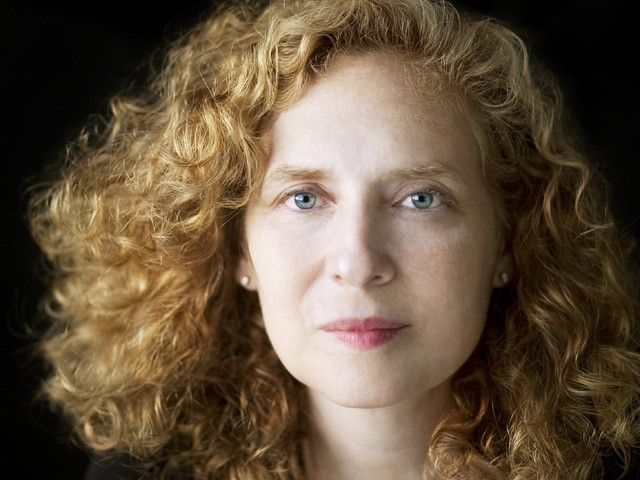 Julia Wolfe The 2019 world premiere of Fire in my mouth, a large-scale work for orchestra and women's chorus, by the New York Philharmonic with The Crossing and the Young People's Chorus of New York City, received extensive acclaim — one reviewer called the work "a monumental achievement in high musical drama, among the most commandingly imaginative and emotively potent works of any kind that I've ever experienced." (The Nation Magazine) The premiere recording of Fire in my mouth is released on Decca Gold, and was recorded live during the world premiere. It has received two Grammy nominations (best contemporary classical composition; best engineered classical album). The work is the third in a series of compositions about the American worker: 2009’s Steel Hammer, which examines the folk-hero John Henry, and the 2014 Pulitzer prize-winning work, Anthracite Fields, a concert-length oratorio for chorus and instruments, which draws on oral histories, interviews, speeches, and more to honor the people who persevered and endured in the Pennsylvania Anthracite coal region. Mark Swed of the LA Times wrote Anthracite Fields "captures not only the sadness of hard lives lost...but also of the sweetness and passion of a way of daily life now also lost. The music compels without overstatement. This is a major, profound work." Wolfe’s music is distinguished by an intense physicality and a relentless power that pushes performers to extremes and demands attention from the audience. She has written a major body of work for strings, from quartets to full orchestra. Her music has been heard at venues throughout the world and has been recorded on Cantaloupe Music, Teldec, Point/Universal, Sony Classical, and Argo/Decca. In addition to receiving the Pulitzer Prize, Wolfe was a 2016 MacArthur Fellow, she received the 2015 Herb Alpert Award in Music, and was named Musical America's 2019 Composer of the Year. She is on faculty at the NYU Steinhardt School and is co-founder/co-artistic director of New York’s legendary music collective Bang on a Can. Her music is published by Red Poppy, Ltd. (ASCAP) and is distributed worldwide by Ricordi/Universal Music Classical.
Julia Wolfe The 2019 world premiere of Fire in my mouth, a large-scale work for orchestra and women's chorus, by the New York Philharmonic with The Crossing and the Young People's Chorus of New York City, received extensive acclaim — one reviewer called the work "a monumental achievement in high musical drama, among the most commandingly imaginative and emotively potent works of any kind that I've ever experienced." (The Nation Magazine) The premiere recording of Fire in my mouth is released on Decca Gold, and was recorded live during the world premiere. It has received two Grammy nominations (best contemporary classical composition; best engineered classical album). The work is the third in a series of compositions about the American worker: 2009’s Steel Hammer, which examines the folk-hero John Henry, and the 2014 Pulitzer prize-winning work, Anthracite Fields, a concert-length oratorio for chorus and instruments, which draws on oral histories, interviews, speeches, and more to honor the people who persevered and endured in the Pennsylvania Anthracite coal region. Mark Swed of the LA Times wrote Anthracite Fields "captures not only the sadness of hard lives lost...but also of the sweetness and passion of a way of daily life now also lost. The music compels without overstatement. This is a major, profound work." Wolfe’s music is distinguished by an intense physicality and a relentless power that pushes performers to extremes and demands attention from the audience. She has written a major body of work for strings, from quartets to full orchestra. Her music has been heard at venues throughout the world and has been recorded on Cantaloupe Music, Teldec, Point/Universal, Sony Classical, and Argo/Decca. In addition to receiving the Pulitzer Prize, Wolfe was a 2016 MacArthur Fellow, she received the 2015 Herb Alpert Award in Music, and was named Musical America's 2019 Composer of the Year. She is on faculty at the NYU Steinhardt School and is co-founder/co-artistic director of New York’s legendary music collective Bang on a Can. Her music is published by Red Poppy, Ltd. (ASCAP) and is distributed worldwide by Ricordi/Universal Music Classical. -
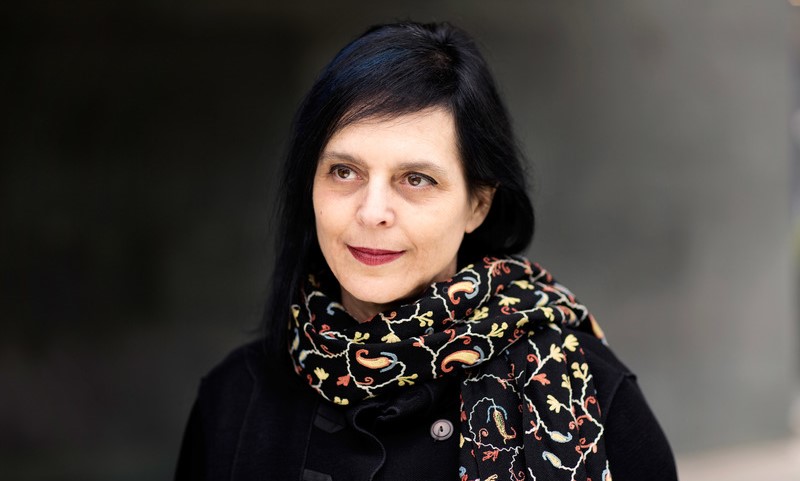 Chaya Czernowin Chaya Czernowin was born and brought up in Israel. After her studies in Israel, at the age of 25, she continued studying in Germany (DAAD grant), the US, and then was invited to live in Japan (Asahi Shimbun Fellowship and American NEA grant) Tokyo, in Germany (a fellowship at the Akademie Schloss Solitude) and in Vienna. Her music has been performed throughout the world, by some of the best orchestras and performers of new music, and she has held a professorship at UCSD, and was the first woman to be appointed as a composition professor at the University of Music and Performing Arts in Vienna, Austria (2006–2009), and at Harvard University, USA (2009 and on) where she has been the Walter Bigelow Rosen Professor of Music. Together with Jean-Baptiste Jolly, the director of Akademie Schloss Solitude near Stuttgart and with composer Steven Kazuo Takasugi, she has founded the summer Academy at Schloss Solitude, a biannual course for composers. Takasugi and Czernowin also teach at Tzlil Meudcan, an international course based in Israel founded by Yaron Deutsch of Ensemble Nikel. “Vital, visceral, wild and undefined as experience itself – can music be that? I have heard such music, rarely, but, it has changed my life. Attempting to work towards it, though, is a difficult balancing act: one must be as sensually sensitive as if one has no skin, while exercising the analytical clarity, precision and focus of holding a surgeon’s knife.” — CHAYA CZERNOWIN Czernowin’s output includes chamber and orchestral music, with and without electronics. Her works were played in most of the significant new music festival in Europe and also in Japan Korea, Australia, US and Canada. She composed 3 large scale works for the stage: Pnima...ins Innere (2000, Munich Biennale) chosen to be the best premiere of the year by Opernwelt yearly critic survey, Adama (2004/5) with Mozart's Zaide (Salzburg Festival 2006) Adama has a second version written with Ludger Engles, with an added choir which was presented in Freiburg Stadttheater (2017). The opera Infinite Now was written in 2017. The piece, combines/ superimposes materials of the first world war (Luk Perceval theater piece "FRONT") with the short story Homecoming by Can Xue. Also this opera was chosen as the premier of the year in the international critics survey of Opernwelt. Czernowin was appointed Artist in residence at the Salzburg Festival in 2005/6 and at the Lucern Festival, Switzerland in 2013. Characteristic of her work are working with metaphor as a means of reaching a sound world which is unfamiliar; the use of noise and physical parameters as weight, textural surface (as in smoothness or roughness etc), problematization of time and unfolding and shifting of scale in order to create a vital, visceral and direct sonic experience. all this with the aim of reaching a music of the subconscious which goes beyond style conventions or rationality. In addition to numerous other prizes, Czernowin represented Israel at Uncesco composer's Rostrum 1980; was awarded the DAAD scholarship ('83–85); Stipendiumpreis ('88) and Kranichsteiner Musikpreis ('92), at Darmstadt Fereinkurse; IRCAM (Paris) reading panel commission ('98); scholarships of SWR experimental Studio Freiburg ('98, '00, '01 etc); The composer’s prize of Siemens Foundation ('03); the Rockefeller Foundation, ('04); a nomination as a fellow to the Wissenschaftkolleg Berlin ('08); Fromm Foundation Award ('09); and Guggenheim Foundation fellowship ('11); Heidelberger Kunstlerinen Preis ('16); The WERGO portrait CD The Quiet (5 orchestral pieces) has been awarded the Quarterly German Record Critics’ Award ('16 ). She was chosen as a member of the Akademie der Kuenste in Berlin in 2017. Czernowin's work is published by Schott. Her music is recorded on Mode records NY, Wergo, Col Legno, Deutsche Gramophone, Kairos, Neos, Ethos, Telos and Einstein Records. She lives near Boston with composer Steven Kazuo Takasugi.
Chaya Czernowin Chaya Czernowin was born and brought up in Israel. After her studies in Israel, at the age of 25, she continued studying in Germany (DAAD grant), the US, and then was invited to live in Japan (Asahi Shimbun Fellowship and American NEA grant) Tokyo, in Germany (a fellowship at the Akademie Schloss Solitude) and in Vienna. Her music has been performed throughout the world, by some of the best orchestras and performers of new music, and she has held a professorship at UCSD, and was the first woman to be appointed as a composition professor at the University of Music and Performing Arts in Vienna, Austria (2006–2009), and at Harvard University, USA (2009 and on) where she has been the Walter Bigelow Rosen Professor of Music. Together with Jean-Baptiste Jolly, the director of Akademie Schloss Solitude near Stuttgart and with composer Steven Kazuo Takasugi, she has founded the summer Academy at Schloss Solitude, a biannual course for composers. Takasugi and Czernowin also teach at Tzlil Meudcan, an international course based in Israel founded by Yaron Deutsch of Ensemble Nikel. “Vital, visceral, wild and undefined as experience itself – can music be that? I have heard such music, rarely, but, it has changed my life. Attempting to work towards it, though, is a difficult balancing act: one must be as sensually sensitive as if one has no skin, while exercising the analytical clarity, precision and focus of holding a surgeon’s knife.” — CHAYA CZERNOWIN Czernowin’s output includes chamber and orchestral music, with and without electronics. Her works were played in most of the significant new music festival in Europe and also in Japan Korea, Australia, US and Canada. She composed 3 large scale works for the stage: Pnima...ins Innere (2000, Munich Biennale) chosen to be the best premiere of the year by Opernwelt yearly critic survey, Adama (2004/5) with Mozart's Zaide (Salzburg Festival 2006) Adama has a second version written with Ludger Engles, with an added choir which was presented in Freiburg Stadttheater (2017). The opera Infinite Now was written in 2017. The piece, combines/ superimposes materials of the first world war (Luk Perceval theater piece "FRONT") with the short story Homecoming by Can Xue. Also this opera was chosen as the premier of the year in the international critics survey of Opernwelt. Czernowin was appointed Artist in residence at the Salzburg Festival in 2005/6 and at the Lucern Festival, Switzerland in 2013. Characteristic of her work are working with metaphor as a means of reaching a sound world which is unfamiliar; the use of noise and physical parameters as weight, textural surface (as in smoothness or roughness etc), problematization of time and unfolding and shifting of scale in order to create a vital, visceral and direct sonic experience. all this with the aim of reaching a music of the subconscious which goes beyond style conventions or rationality. In addition to numerous other prizes, Czernowin represented Israel at Uncesco composer's Rostrum 1980; was awarded the DAAD scholarship ('83–85); Stipendiumpreis ('88) and Kranichsteiner Musikpreis ('92), at Darmstadt Fereinkurse; IRCAM (Paris) reading panel commission ('98); scholarships of SWR experimental Studio Freiburg ('98, '00, '01 etc); The composer’s prize of Siemens Foundation ('03); the Rockefeller Foundation, ('04); a nomination as a fellow to the Wissenschaftkolleg Berlin ('08); Fromm Foundation Award ('09); and Guggenheim Foundation fellowship ('11); Heidelberger Kunstlerinen Preis ('16); The WERGO portrait CD The Quiet (5 orchestral pieces) has been awarded the Quarterly German Record Critics’ Award ('16 ). She was chosen as a member of the Akademie der Kuenste in Berlin in 2017. Czernowin's work is published by Schott. Her music is recorded on Mode records NY, Wergo, Col Legno, Deutsche Gramophone, Kairos, Neos, Ethos, Telos and Einstein Records. She lives near Boston with composer Steven Kazuo Takasugi. -
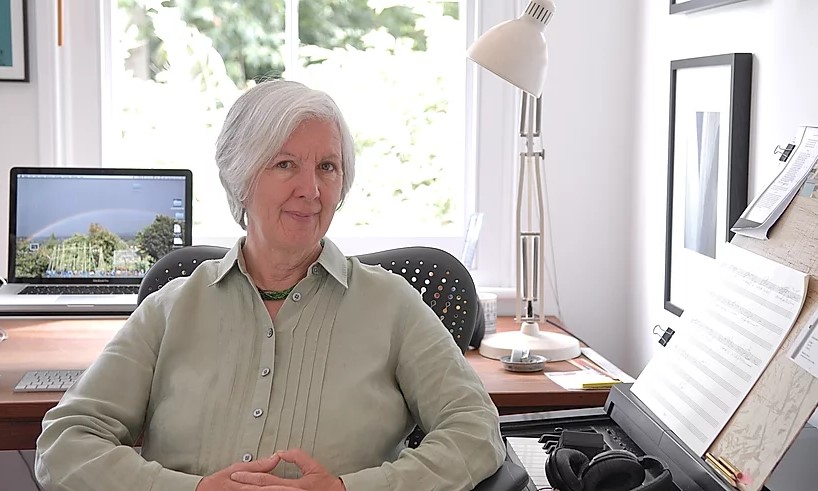 Judith Weir Judith Weir was born into a Scottish family in 1954, but grew up near London. She was an oboe player, performing with the National Youth Orchestra of Great Britain, and studied composition with John Tavener during her schooldays. She went on to Cambridge University, where her composition teacher was Robin Holloway; and in 1975 attended summer school at Tanglewood, where she worked with Gunther Schuller. After this she spent several years working in schools and adult education in rural southern England; followed by a period based in Scotland, teaching at Glasgow University and RSAMD. During this time she began to write a series of operas (including King Harald’s Saga, The Black Spider, A Night at the Chinese Opera, The Vanishing Bridegroom and Blond Eckbert) which have subsequently received many performances in the UK, Germany, Austria, the Netherlands, Belgium and the USA. The most recent opera is Miss Fortune, premiered at Bregenz in 2011, and then staged at the Royal Opera House Covent Garden in 2012. As resident composer with the City of Birmingham Symphony Orchestra in the 1990s, she wrote several works for orchestra and chorus (including Forest, Storm and We are Shadows) which were premiered by the orchestra’s then Music Director, Simon Rattle. She has been commissioned by the Boston Symphony Orchestra (Music Untangled and Natural History) the Minnesota Orchestra (The Welcome Arrival of Rain) and the London Sinfonietta (Tiger under the Table); and has written concert works for some notable singers, including Jane Manning, Dawn Upshaw, Jessye Norman and Alice Coote. Her latest vocal work is Good Morning, Midnight, premiered by Sarah Connolly and the Aurora Orchestra in May 2015. She now lives in London, where she has had a long association with Spitalfields Music Festival; and in recent years has taught as a visiting professor at Princeton, Harvard and Cardiff universities. Honours for her work include the Critics’ Circle, South Bank Show, Elise L Stoeger and Ivor Novello awards, a CBE (1995) and the Queen’s Medal for Music (2007). In 2014 she was appointed Master of The Queen’s Music in succession to Sir Peter Maxwell Davies. In January 2015 she became Associate Composer to the BBC Singers. Much of her music has been recorded, and is available on the NMC, Delphian and Signum labels. In 2014-15 there were releases of The Vanishing Bridegroom (NMC) and Storm (BBC Singers/Signum). Judith Weir’s music is published by Chester Music and Novello & Co. She blogs about her experiences of cultural life in the UK at judithweir.com.
Judith Weir Judith Weir was born into a Scottish family in 1954, but grew up near London. She was an oboe player, performing with the National Youth Orchestra of Great Britain, and studied composition with John Tavener during her schooldays. She went on to Cambridge University, where her composition teacher was Robin Holloway; and in 1975 attended summer school at Tanglewood, where she worked with Gunther Schuller. After this she spent several years working in schools and adult education in rural southern England; followed by a period based in Scotland, teaching at Glasgow University and RSAMD. During this time she began to write a series of operas (including King Harald’s Saga, The Black Spider, A Night at the Chinese Opera, The Vanishing Bridegroom and Blond Eckbert) which have subsequently received many performances in the UK, Germany, Austria, the Netherlands, Belgium and the USA. The most recent opera is Miss Fortune, premiered at Bregenz in 2011, and then staged at the Royal Opera House Covent Garden in 2012. As resident composer with the City of Birmingham Symphony Orchestra in the 1990s, she wrote several works for orchestra and chorus (including Forest, Storm and We are Shadows) which were premiered by the orchestra’s then Music Director, Simon Rattle. She has been commissioned by the Boston Symphony Orchestra (Music Untangled and Natural History) the Minnesota Orchestra (The Welcome Arrival of Rain) and the London Sinfonietta (Tiger under the Table); and has written concert works for some notable singers, including Jane Manning, Dawn Upshaw, Jessye Norman and Alice Coote. Her latest vocal work is Good Morning, Midnight, premiered by Sarah Connolly and the Aurora Orchestra in May 2015. She now lives in London, where she has had a long association with Spitalfields Music Festival; and in recent years has taught as a visiting professor at Princeton, Harvard and Cardiff universities. Honours for her work include the Critics’ Circle, South Bank Show, Elise L Stoeger and Ivor Novello awards, a CBE (1995) and the Queen’s Medal for Music (2007). In 2014 she was appointed Master of The Queen’s Music in succession to Sir Peter Maxwell Davies. In January 2015 she became Associate Composer to the BBC Singers. Much of her music has been recorded, and is available on the NMC, Delphian and Signum labels. In 2014-15 there were releases of The Vanishing Bridegroom (NMC) and Storm (BBC Singers/Signum). Judith Weir’s music is published by Chester Music and Novello & Co. She blogs about her experiences of cultural life in the UK at judithweir.com. -
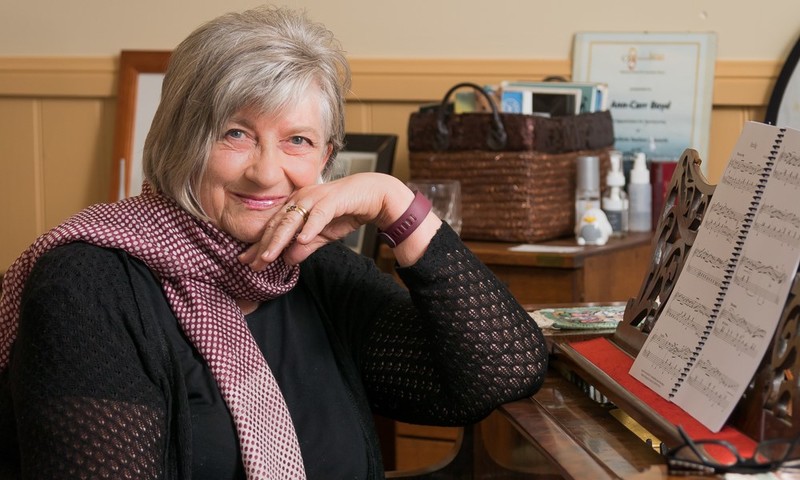 Ann Carr-Boyd Ann Carr-Boyd is an internationally acclaimed Australian composer whose music is truly Australian, but embraces her close connection with European music through her family of professional musicians from Bohemia. Her musical style is often classed as ‘chameleon’ and is the outcome of this inheritance. The European influence is evident in her music which is recognised for its romantic harmonies, adherence to classical form and Australian inspiration. Her works have been performed at many landmark events, including: “The Bells of Sydney Harbour”, composed for the opening of the new Ron Sharp organ in the Sydney Opera House. “Images of Australia”, composed for the ABC television documentary marking the bicentenary of European settlement in Australia. The orchestral work “Look at the Stars”, performed by the Australian Youth Orchestra at the opening of the new Parliament House in Canberra. “Beneath the Yellow Moon” in the ABC Classic FM radio series “Images of our Times”. These landmark events, plus the constant presence of her music in radio broadcasts and concerts and the popularity of such works as Fandango for mandolins, have made her music well known and loved. For the last 20 years Ann’s piano, flute, cello and other instrumental music have been part of the Australian Music Examinations Board (AMEB) syllabus.
Ann Carr-Boyd Ann Carr-Boyd is an internationally acclaimed Australian composer whose music is truly Australian, but embraces her close connection with European music through her family of professional musicians from Bohemia. Her musical style is often classed as ‘chameleon’ and is the outcome of this inheritance. The European influence is evident in her music which is recognised for its romantic harmonies, adherence to classical form and Australian inspiration. Her works have been performed at many landmark events, including: “The Bells of Sydney Harbour”, composed for the opening of the new Ron Sharp organ in the Sydney Opera House. “Images of Australia”, composed for the ABC television documentary marking the bicentenary of European settlement in Australia. The orchestral work “Look at the Stars”, performed by the Australian Youth Orchestra at the opening of the new Parliament House in Canberra. “Beneath the Yellow Moon” in the ABC Classic FM radio series “Images of our Times”. These landmark events, plus the constant presence of her music in radio broadcasts and concerts and the popularity of such works as Fandango for mandolins, have made her music well known and loved. For the last 20 years Ann’s piano, flute, cello and other instrumental music have been part of the Australian Music Examinations Board (AMEB) syllabus. -
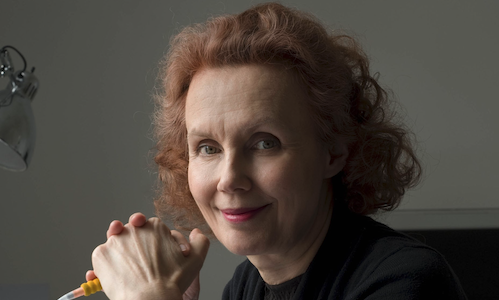 Kaija Saariaho Kaija Saariaho is a prominent member of a group of Finnish artists who are making a worldwide impact. She studied in Helsinki, Fribourg and Paris. At IRCAM, Saariaho developed techniques of computer-assisted composition and acquired fluency in working on tape and with live electronics. This experience influenced her approach to writing for orchestra, with its emphasis on the shaping of dense masses of sound in slow transformations. Significantly, her first orchestral piece, Verblendungen (1984), involves a gradual exchange of roles and character between orchestra and tape. And even the titles of her, linked, pair of orchestral works, Du Cristal (1989) and …à la Fumée (1990) suggest her preoccupation with colour and texture. Although much of her catalogue comprises chamber works, she has turned increasingly to larger forces and broader structures, such as Orion (2004), Laterna Magica (2008), Circle Map (2008). The detailed notation using harmonics, microtonaly and detailed continuum of sound extending from pure tone to unpitched noise – all features found in one of her most frequently performed works, Graal Théâtre for violin and orchestra (1994). Her catalogue also includes Aile du songe (2001), Notes on Light (2006), D’OM LE VRAI SENS (2010), Maan Varjot (2014). In 2015, Gerald Finley and Los Angeles Philharmonic Orchestra, conducted by Gustavo Dudamel, premier True Fire for baritone and orchestra. From later nineties, Saariaho has turned to opera, with outstanding success: L’Amour de Loin (2000), Adrian Mater (2006), Emilie (2010) and the oratorio La Passion de Simone (2006). Her opera Only the Sound Remains was premiered in March 2016 at The Dutch National Opera. Other performances will follow in Paris, Helsinki, Madrid and Toronto. Saariaho has claimed the major composing awards: Grawemeyer Award, Wihuri Prize, Nemmers Prize, Sonning Prize, Polar Music Prize. In 2015 she was the judge of the Toru Takemitsu Composition Award. Kaija Saariaho’s harp concerto Trans was premiered in August 2016 by Xavier de Maistre and The Tokyo Symphony Orchestra, conducted by Ernest Martinez-Izquierdo at the Suntory Hall, Tokyo.
Kaija Saariaho Kaija Saariaho is a prominent member of a group of Finnish artists who are making a worldwide impact. She studied in Helsinki, Fribourg and Paris. At IRCAM, Saariaho developed techniques of computer-assisted composition and acquired fluency in working on tape and with live electronics. This experience influenced her approach to writing for orchestra, with its emphasis on the shaping of dense masses of sound in slow transformations. Significantly, her first orchestral piece, Verblendungen (1984), involves a gradual exchange of roles and character between orchestra and tape. And even the titles of her, linked, pair of orchestral works, Du Cristal (1989) and …à la Fumée (1990) suggest her preoccupation with colour and texture. Although much of her catalogue comprises chamber works, she has turned increasingly to larger forces and broader structures, such as Orion (2004), Laterna Magica (2008), Circle Map (2008). The detailed notation using harmonics, microtonaly and detailed continuum of sound extending from pure tone to unpitched noise – all features found in one of her most frequently performed works, Graal Théâtre for violin and orchestra (1994). Her catalogue also includes Aile du songe (2001), Notes on Light (2006), D’OM LE VRAI SENS (2010), Maan Varjot (2014). In 2015, Gerald Finley and Los Angeles Philharmonic Orchestra, conducted by Gustavo Dudamel, premier True Fire for baritone and orchestra. From later nineties, Saariaho has turned to opera, with outstanding success: L’Amour de Loin (2000), Adrian Mater (2006), Emilie (2010) and the oratorio La Passion de Simone (2006). Her opera Only the Sound Remains was premiered in March 2016 at The Dutch National Opera. Other performances will follow in Paris, Helsinki, Madrid and Toronto. Saariaho has claimed the major composing awards: Grawemeyer Award, Wihuri Prize, Nemmers Prize, Sonning Prize, Polar Music Prize. In 2015 she was the judge of the Toru Takemitsu Composition Award. Kaija Saariaho’s harp concerto Trans was premiered in August 2016 by Xavier de Maistre and The Tokyo Symphony Orchestra, conducted by Ernest Martinez-Izquierdo at the Suntory Hall, Tokyo. -
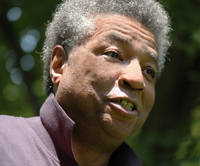 Alvin Singleton Alvin Singleton was born in Brooklyn, New York and attended New York University and Yale. As a Fulbright Scholar, he studied with Goffredo Petrassi at Accademia Nazionale di Santa Cecilia in Rome, Italy. After living and working in Europe for fourteen years, Singleton returned to the United States to become Composer-in-Residence with the Atlanta Symphony Orchestra (1985-88). He subsequently served as Resident Composer at Spelman College in Atlanta (1988-91), as UNISYS Composer-in-Residence with the Detroit Symphony Orchestra (1996-97), and was the 2002–03 Composer-in-Residence with the Ritz Chamber Players of Jacksonville, Florida. In addition, he has served as Visiting Professor of Composition at the Yale University School of Music. Singleton has amassed numerous awards throughout his compositional life. He is the recipient of a 2003 Guggenheim Fellowship and was commissioned by The Serge Koussevitsky Music Foundation and American Composers Orchestra for the orchestral work When Given a Choice, which premiered at Carnegie Hall in April 2004. His other awards include the Kranichsteiner Musikpreis by the City of Darmstadt, Germany, twice the Musikprotokoll Kompositionpreis by the Austrian Radio, the Mayor’s Fellowship in the Arts Award by the City of Atlanta, and a grant from the National Endowment for the Arts. Also in Spring 2004, Singleton joined the American Composers Orchestra as “Music Alive” Composer-in-Residence and Artistic Advisor for the IMPROVISE! Festival. Singleton has composed music for theatre, orchestra, solo instruments, and a variety of chamber ensembles. TRUTH, a work for chorus, ensemble and dance based on the life of Sojourner Truth, was premiered in 2006 at the Ordway Center for the Performing Arts in St. Paul, Minnesota by the VocalEssence Ensemble Singers and TU Dance. His music is published by Schott Music Corporation, and is recorded on the Albany Records, Elektra/Nonesuch, First Edition, Tzadik, and Innova labels. Singleton’s latest CD “Sing to the Sun” was released in February 2007 on Albany Records and is the fourth all-Singleton disc. His recent work, Through It All, was commissioned by The ASCAP Foundation and Spivey Hall, and was premiered by the Grammy-nominated ensemble Imani Winds in February 2008. In October, 2008, Singleton served as Composer-in-Residence in Tirana, Albania. He was invited by the cultural organization Eurynome Corp., who presented the Albanian premieres of selected works performed by the Orchestra of Albanian Radio and Television conducted by Oleg Arapi. Singleton also conducted a Masterclass at the Fine Arts Academy in Tirana. In November, 2008 Singleton's Brooklyn Bones, written in commemoration of the Fort Greene Park Prison Ship Martyrs Monument and setting an original text by Patricia Hampl, received its world premiere at the Brooklyn Technical High School in New York City, performed by the Monmouth Civic Chorus and Orchestra, tenor Cameron Smith, and conducted by Mark Shapiro. His compositions have been performed by the symphony orchestras of Boston, Pittsburgh, Houston, Cincinnati, Atlanta, Cleveland, Philadelphia, Detroit, Oregon, Baltimore, Syracuse, Louisville, and Florida, the American Composers Orchestra, the Rotterdam Philharmonic, l’Orchestre de Paris, das Guerzenich-Orchester Koelner Philharmoniker and also the Kronos Quartet, the Chamber Music Society of Lincoln Center, the Nash Ensemble of London, the Asko Ensemble of Amsterdam, Ensemble des 20. Jahrhunderts of Vienna, the London Sinfonietta, Trio Basso of Cologne and the Bremer Tanztheater. Important international festivals have also programmed Singleton’s music. They include Chamber Music Northwest in Portland, OR, Tanglewood, Aspen, Bravo! Colorado, Music from Angel Fire in New Mexico, Cincinnati May Festival, Cabrillo Music Festival, Bang On A Can, the National Black Arts Festival in Atlanta, Other Minds in San Francisco, Festival Miami, the Vienna Summer Festival, Pro Musica Nova in Bremen, the Styrian Autumn Festival in Graz, Nuova Consonanza Festival in Rome, the Brussels ISCM World music Days, and IRCAM in Paris.
Alvin Singleton Alvin Singleton was born in Brooklyn, New York and attended New York University and Yale. As a Fulbright Scholar, he studied with Goffredo Petrassi at Accademia Nazionale di Santa Cecilia in Rome, Italy. After living and working in Europe for fourteen years, Singleton returned to the United States to become Composer-in-Residence with the Atlanta Symphony Orchestra (1985-88). He subsequently served as Resident Composer at Spelman College in Atlanta (1988-91), as UNISYS Composer-in-Residence with the Detroit Symphony Orchestra (1996-97), and was the 2002–03 Composer-in-Residence with the Ritz Chamber Players of Jacksonville, Florida. In addition, he has served as Visiting Professor of Composition at the Yale University School of Music. Singleton has amassed numerous awards throughout his compositional life. He is the recipient of a 2003 Guggenheim Fellowship and was commissioned by The Serge Koussevitsky Music Foundation and American Composers Orchestra for the orchestral work When Given a Choice, which premiered at Carnegie Hall in April 2004. His other awards include the Kranichsteiner Musikpreis by the City of Darmstadt, Germany, twice the Musikprotokoll Kompositionpreis by the Austrian Radio, the Mayor’s Fellowship in the Arts Award by the City of Atlanta, and a grant from the National Endowment for the Arts. Also in Spring 2004, Singleton joined the American Composers Orchestra as “Music Alive” Composer-in-Residence and Artistic Advisor for the IMPROVISE! Festival. Singleton has composed music for theatre, orchestra, solo instruments, and a variety of chamber ensembles. TRUTH, a work for chorus, ensemble and dance based on the life of Sojourner Truth, was premiered in 2006 at the Ordway Center for the Performing Arts in St. Paul, Minnesota by the VocalEssence Ensemble Singers and TU Dance. His music is published by Schott Music Corporation, and is recorded on the Albany Records, Elektra/Nonesuch, First Edition, Tzadik, and Innova labels. Singleton’s latest CD “Sing to the Sun” was released in February 2007 on Albany Records and is the fourth all-Singleton disc. His recent work, Through It All, was commissioned by The ASCAP Foundation and Spivey Hall, and was premiered by the Grammy-nominated ensemble Imani Winds in February 2008. In October, 2008, Singleton served as Composer-in-Residence in Tirana, Albania. He was invited by the cultural organization Eurynome Corp., who presented the Albanian premieres of selected works performed by the Orchestra of Albanian Radio and Television conducted by Oleg Arapi. Singleton also conducted a Masterclass at the Fine Arts Academy in Tirana. In November, 2008 Singleton's Brooklyn Bones, written in commemoration of the Fort Greene Park Prison Ship Martyrs Monument and setting an original text by Patricia Hampl, received its world premiere at the Brooklyn Technical High School in New York City, performed by the Monmouth Civic Chorus and Orchestra, tenor Cameron Smith, and conducted by Mark Shapiro. His compositions have been performed by the symphony orchestras of Boston, Pittsburgh, Houston, Cincinnati, Atlanta, Cleveland, Philadelphia, Detroit, Oregon, Baltimore, Syracuse, Louisville, and Florida, the American Composers Orchestra, the Rotterdam Philharmonic, l’Orchestre de Paris, das Guerzenich-Orchester Koelner Philharmoniker and also the Kronos Quartet, the Chamber Music Society of Lincoln Center, the Nash Ensemble of London, the Asko Ensemble of Amsterdam, Ensemble des 20. Jahrhunderts of Vienna, the London Sinfonietta, Trio Basso of Cologne and the Bremer Tanztheater. Important international festivals have also programmed Singleton’s music. They include Chamber Music Northwest in Portland, OR, Tanglewood, Aspen, Bravo! Colorado, Music from Angel Fire in New Mexico, Cincinnati May Festival, Cabrillo Music Festival, Bang On A Can, the National Black Arts Festival in Atlanta, Other Minds in San Francisco, Festival Miami, the Vienna Summer Festival, Pro Musica Nova in Bremen, the Styrian Autumn Festival in Graz, Nuova Consonanza Festival in Rome, the Brussels ISCM World music Days, and IRCAM in Paris. -
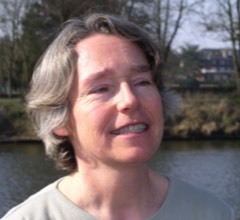 Nicola LeFanu Nicola LeFanu was born in England in 1947, the daughter of Irish parents: her father William LeFanu was from an Irish literary family, and her mother was the composer Elizabeth Maconchy. LeFanu studied at Oxford, RCM and, as a Harkness Fellow, at Harvard. She has Honorary Doctorates from the Universities of Durham, Aberdeen, and Open University, is an Honorary Fellow of St Hilda’s College Oxford, and is FRCM and FTCL. She has composed around one hundred works which have been played and broadcast all over the world; her music is published by Novello and by Peters Edition Ltd. She has been commissioned by the BBC, by festivals in UK and beyond, and by leading orchestras, ensembles and soloists. Many works are available on CD, including music for strings (Naxos), Horn Concerto (NMC) and Saxophone Concerto (NEOS). She has a particular affinity for vocal music and has composed eight operas: Dawnpath (New Opera Company, London, 1977), The Story of Mary O’Neill, a radio opera, libretto Sally McInerney, (BBC, 1987), The Green Children, a children’s opera, libretto Kevin Crossley-Holland, (Kings Lynn Festival, 1990), Blood Wedding, libretto Deborah Levy (WPT, London 1992), The Wildman, libretto Crossley-Holland, (Aldeburgh Festival, 1995), Light Passing, libretto John Edmonds, (BBC/NCEM, York, 2004), Dream Hunter, libretto John Fuller (Lontano, Wales 2011, London 2012) and Tokaido Road, a Journey after Hiroshige, libretto Nancy Gaffield, (Okeanos, Cheltenham Festival, July 2014.) She is active in many aspects of the musical profession, as composer, teacher, director and as a member of various public boards and new music organisations. From 1994–2008 she was Professor of Music at the University of York, where many gifted composers came to study with her. Previously she taught composition at Kings' College London; in the 1970s, she directed Morley College Music Theatre. In 2015 she was awarded the Elgar bursary, which carries a commission from the Royal Philharmonic Society. In 2017 she was BBC Radio 3 ‘Composer of the Week’. Recent premieres include works for chamber ensemble, with or without voice, for solo instrumentalists, and for orchestra. Threnody was premiered in Dublin in 2015 (RTE NSO) and The Crimson Bird, the RPS commission, at the Barbican, London, in 2017. BBCSO/Ilan Volkov with Rachel Nicholls, soprano soloist.
Nicola LeFanu Nicola LeFanu was born in England in 1947, the daughter of Irish parents: her father William LeFanu was from an Irish literary family, and her mother was the composer Elizabeth Maconchy. LeFanu studied at Oxford, RCM and, as a Harkness Fellow, at Harvard. She has Honorary Doctorates from the Universities of Durham, Aberdeen, and Open University, is an Honorary Fellow of St Hilda’s College Oxford, and is FRCM and FTCL. She has composed around one hundred works which have been played and broadcast all over the world; her music is published by Novello and by Peters Edition Ltd. She has been commissioned by the BBC, by festivals in UK and beyond, and by leading orchestras, ensembles and soloists. Many works are available on CD, including music for strings (Naxos), Horn Concerto (NMC) and Saxophone Concerto (NEOS). She has a particular affinity for vocal music and has composed eight operas: Dawnpath (New Opera Company, London, 1977), The Story of Mary O’Neill, a radio opera, libretto Sally McInerney, (BBC, 1987), The Green Children, a children’s opera, libretto Kevin Crossley-Holland, (Kings Lynn Festival, 1990), Blood Wedding, libretto Deborah Levy (WPT, London 1992), The Wildman, libretto Crossley-Holland, (Aldeburgh Festival, 1995), Light Passing, libretto John Edmonds, (BBC/NCEM, York, 2004), Dream Hunter, libretto John Fuller (Lontano, Wales 2011, London 2012) and Tokaido Road, a Journey after Hiroshige, libretto Nancy Gaffield, (Okeanos, Cheltenham Festival, July 2014.) She is active in many aspects of the musical profession, as composer, teacher, director and as a member of various public boards and new music organisations. From 1994–2008 she was Professor of Music at the University of York, where many gifted composers came to study with her. Previously she taught composition at Kings' College London; in the 1970s, she directed Morley College Music Theatre. In 2015 she was awarded the Elgar bursary, which carries a commission from the Royal Philharmonic Society. In 2017 she was BBC Radio 3 ‘Composer of the Week’. Recent premieres include works for chamber ensemble, with or without voice, for solo instrumentalists, and for orchestra. Threnody was premiered in Dublin in 2015 (RTE NSO) and The Crimson Bird, the RPS commission, at the Barbican, London, in 2017. BBCSO/Ilan Volkov with Rachel Nicholls, soprano soloist. -
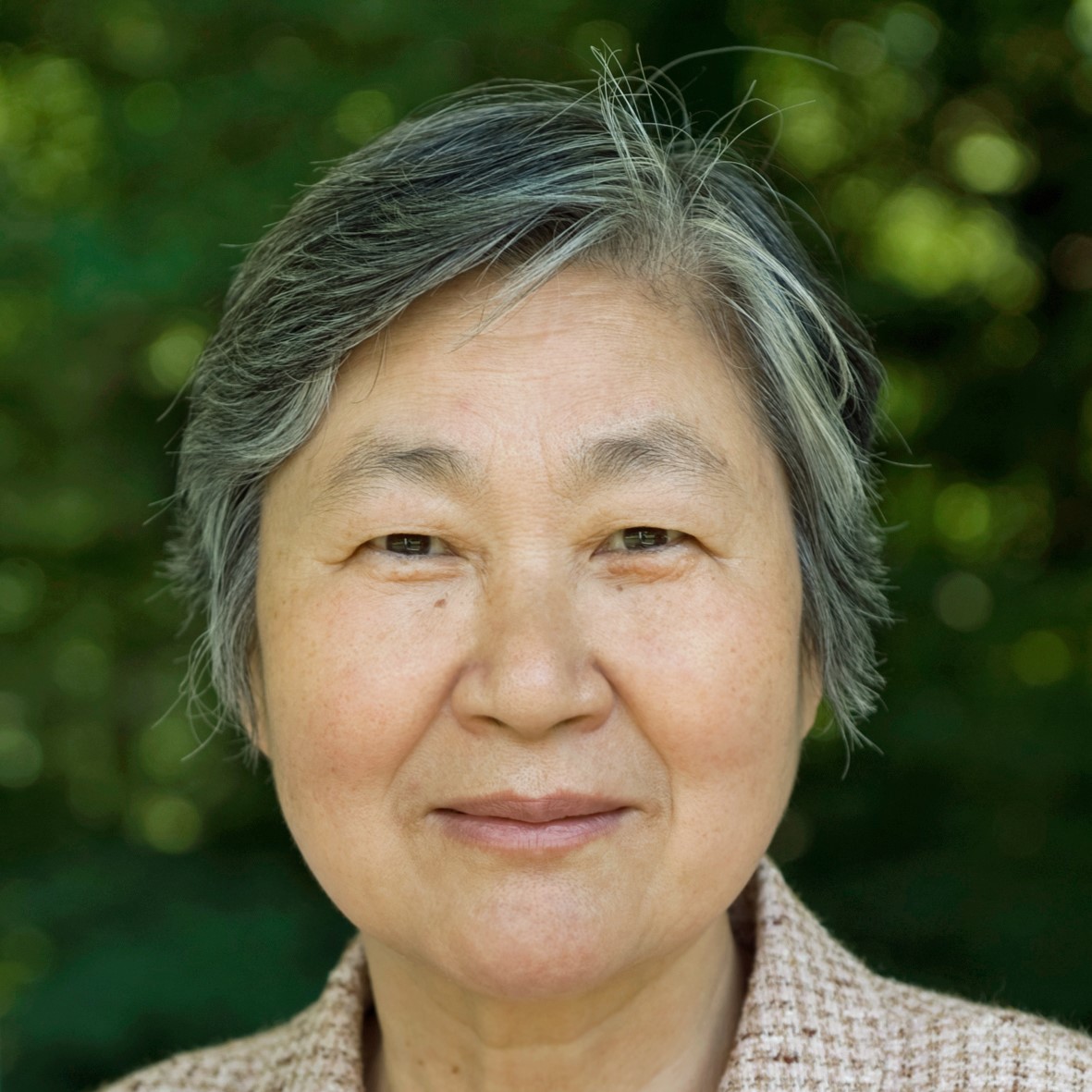 Younghi Pagh-Paan Younghi Pagh‑Paan was born in 1945 in Cheondu, South Korea. From 1965 to 1971 she studied at the Seoul National University, prior to coming to Germany on a DAAD scholarship. From 1974 Younghi Pagh‑Paan studied at the Freiburg Musikhochschule, where her teachers included Klaus Huber (composition), Brian Ferneyhough (analysis), Peter Förtig (music theory) and Edith Picht-Axenfeld (piano); she concluded her studies in 1979. She gained international attention through the performance of her orchestral work «SORI» at the Donaueschingen Festival in 1980. Her works, which seek to renew the nature of Korean musical culture by means of various Western composition techniques, aroused increasing interest at the most important new music festivals, and in concert series throughout Europe. Younghi Pagh‑Paan has won numerous awards for her output: in 1978 the 1st Prize at the 5th Composers Seminar in Boswil (Switzerland), in 1979 the 1st Prize at the Rostrum of Composers (Unesco, Pads), as well as the Na‑Pa Music Prize in Korea, and in 1980 the 1st Prize of the City of Stuttgart. 1980/1981 she had a scholarship at the Südwestfunk's Heinrich‑Strobel-Stiftung, and in 1985 a scholarship from the Kunststiftung of Baden-Württemberg. In 1995 she was awarded the Heidelberg Artists Prize.
Younghi Pagh-Paan Younghi Pagh‑Paan was born in 1945 in Cheondu, South Korea. From 1965 to 1971 she studied at the Seoul National University, prior to coming to Germany on a DAAD scholarship. From 1974 Younghi Pagh‑Paan studied at the Freiburg Musikhochschule, where her teachers included Klaus Huber (composition), Brian Ferneyhough (analysis), Peter Förtig (music theory) and Edith Picht-Axenfeld (piano); she concluded her studies in 1979. She gained international attention through the performance of her orchestral work «SORI» at the Donaueschingen Festival in 1980. Her works, which seek to renew the nature of Korean musical culture by means of various Western composition techniques, aroused increasing interest at the most important new music festivals, and in concert series throughout Europe. Younghi Pagh‑Paan has won numerous awards for her output: in 1978 the 1st Prize at the 5th Composers Seminar in Boswil (Switzerland), in 1979 the 1st Prize at the Rostrum of Composers (Unesco, Pads), as well as the Na‑Pa Music Prize in Korea, and in 1980 the 1st Prize of the City of Stuttgart. 1980/1981 she had a scholarship at the Südwestfunk's Heinrich‑Strobel-Stiftung, and in 1985 a scholarship from the Kunststiftung of Baden-Württemberg. In 1995 she was awarded the Heidelberg Artists Prize. -
 Victoria Bond A major force in 21st century music, composer Victoria Bond is known for her melodic gift and dramatic flair. Her works for orchestra, chamber ensemble and opera have been lauded by the New York Times as "powerful, stylistically varied and technically demanding." In addition to Soul of a Nation, the four presidential portraits on the Albany label, highlights of Ms. Bond’s catalogue include the operas Mrs. President, Clara and The Miracle of Light; ballets Equinox and Other Selves; orchestral works Thinking like a Mountain, Bridges and Urban Bird; and chamber works Dreams of Flying, Frescoes and Ash and Instruments of Revelation, among many others. Her compositions have been performed by the New York City Opera, Shanghai, Dallas and Houston Symphonies, members of the Chicago Symphony and New York Philharmonic, American Ballet Theater and the Cassatt and Audubon Quartets. The New York Times praised Victoria Bond’s conducting as “full of energy and fervor.” She has served as principal guest conductor of Chamber Opera Chicago since 2005. Prior positions include Assistant Conductor of Pittsburgh Symphony and New York City Opera and Music Director of the Roanoke Symphony and Opera, Bel Canto Opera and Harrisburg Opera. Ms. Bond has guest conducted throughout the United States, Europe, South America and Asia. She is the first woman awarded a doctorate in orchestral conducting from the Juilliard School. Ms. Bond is Artistic Director of Cutting Edge Concerts New Music Festival in New York, which she founded in 1998, and is a frequent lecturer at the Metropolitan Opera and has lectured for the New York Philharmonic. The Wall Street Journal, NBC’s Today Show, the New York Times and other national publications have profiled Ms. Bond.
Victoria Bond A major force in 21st century music, composer Victoria Bond is known for her melodic gift and dramatic flair. Her works for orchestra, chamber ensemble and opera have been lauded by the New York Times as "powerful, stylistically varied and technically demanding." In addition to Soul of a Nation, the four presidential portraits on the Albany label, highlights of Ms. Bond’s catalogue include the operas Mrs. President, Clara and The Miracle of Light; ballets Equinox and Other Selves; orchestral works Thinking like a Mountain, Bridges and Urban Bird; and chamber works Dreams of Flying, Frescoes and Ash and Instruments of Revelation, among many others. Her compositions have been performed by the New York City Opera, Shanghai, Dallas and Houston Symphonies, members of the Chicago Symphony and New York Philharmonic, American Ballet Theater and the Cassatt and Audubon Quartets. The New York Times praised Victoria Bond’s conducting as “full of energy and fervor.” She has served as principal guest conductor of Chamber Opera Chicago since 2005. Prior positions include Assistant Conductor of Pittsburgh Symphony and New York City Opera and Music Director of the Roanoke Symphony and Opera, Bel Canto Opera and Harrisburg Opera. Ms. Bond has guest conducted throughout the United States, Europe, South America and Asia. She is the first woman awarded a doctorate in orchestral conducting from the Juilliard School. Ms. Bond is Artistic Director of Cutting Edge Concerts New Music Festival in New York, which she founded in 1998, and is a frequent lecturer at the Metropolitan Opera and has lectured for the New York Philharmonic. The Wall Street Journal, NBC’s Today Show, the New York Times and other national publications have profiled Ms. Bond. -
 Marta Ptaszyńska MARTA PTASZYŃSKA, composer, percussionist, and a pedagogue, born in Warsaw, Poland, has been honored with many prizes and awards including Simon J. Guggenheim Foundation Fellowship, the Danks Award of the American Academy of Arts and Letters, the Fromm Music Foundation Award, the Award at the International Rostrum of Composers at the UNESCO in Paris, several ASCAP Awards, and many more. In 1995 she received the “Officer Cross of Merit” of the Republic of Poland. Her music have been performed at prestigious international festivals, including ISCM World Music Days, the Huddersfield Contemporary Music Festival, the Salzburg Festival, the Warsaw Autumn International Festival, the Schleswig-Holstein Music Festival, the Gulbenkian Foundation New Music Festival, the Prix Futura in Berlin, and many others. Ptaszyńska studied composition with Tadeusz Paciorkiewicz at the Academy of Music in Warsaw and worked also privately with Witold Lutosławski, who later became her mentor. As a French Government ‘s grant recipient, she studied in the early seventies with Nadia Boulanger and attended Olivier Messiaen’s analysis classes at the Paris Conservatory. In 1974, she received an Artist Diploma Degree in Percussion Performance at the Cleveland Institute of Music in Cleveland, where she worked with Cloyd Duff, Richard Weiner, and Donald Erb. Widely acclaimed as a virtuoso percussionist, for several decades she has performed extensively as a soloist percussionist, and has participated in many European and American festivals. Her career as a professor of composition includes professorships at Bennington College in Vermont, the University of California in Berkeley and in Santa Barbara, the Cincinnati College-Conservatory of Music, Indiana University in Bloomington, and Northwestern University in Evanston. In 1998 Ptaszyńska was appointed a Professor of Music and the Humanities at the University of Chicago. Since 2005 she holds an endowed chair of Helen B. & Frank L. Sulzberger Professor in Composition. Her works are recorded on Muza Polish Records, Olympia, Chandos, ProViva, Bayers Records, DUX, and Polygram-CD Accord labels.
Marta Ptaszyńska MARTA PTASZYŃSKA, composer, percussionist, and a pedagogue, born in Warsaw, Poland, has been honored with many prizes and awards including Simon J. Guggenheim Foundation Fellowship, the Danks Award of the American Academy of Arts and Letters, the Fromm Music Foundation Award, the Award at the International Rostrum of Composers at the UNESCO in Paris, several ASCAP Awards, and many more. In 1995 she received the “Officer Cross of Merit” of the Republic of Poland. Her music have been performed at prestigious international festivals, including ISCM World Music Days, the Huddersfield Contemporary Music Festival, the Salzburg Festival, the Warsaw Autumn International Festival, the Schleswig-Holstein Music Festival, the Gulbenkian Foundation New Music Festival, the Prix Futura in Berlin, and many others. Ptaszyńska studied composition with Tadeusz Paciorkiewicz at the Academy of Music in Warsaw and worked also privately with Witold Lutosławski, who later became her mentor. As a French Government ‘s grant recipient, she studied in the early seventies with Nadia Boulanger and attended Olivier Messiaen’s analysis classes at the Paris Conservatory. In 1974, she received an Artist Diploma Degree in Percussion Performance at the Cleveland Institute of Music in Cleveland, where she worked with Cloyd Duff, Richard Weiner, and Donald Erb. Widely acclaimed as a virtuoso percussionist, for several decades she has performed extensively as a soloist percussionist, and has participated in many European and American festivals. Her career as a professor of composition includes professorships at Bennington College in Vermont, the University of California in Berkeley and in Santa Barbara, the Cincinnati College-Conservatory of Music, Indiana University in Bloomington, and Northwestern University in Evanston. In 1998 Ptaszyńska was appointed a Professor of Music and the Humanities at the University of Chicago. Since 2005 she holds an endowed chair of Helen B. & Frank L. Sulzberger Professor in Composition. Her works are recorded on Muza Polish Records, Olympia, Chandos, ProViva, Bayers Records, DUX, and Polygram-CD Accord labels. -
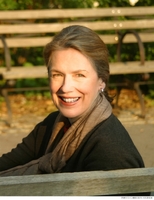 Margaret Brouwer Margaret Brouwer has earned critical accolades for her music's lyricism, musical imagery and emotional power. Lawson Taitte (The Dallas Morning) News wrote, “Ms. Brouwer has one of the most delicate ears and inventive imaginations among contemporary American composers.” Brouwer’s honors include an Award in Music from the American Academy of Arts and Letters, Meet The Composer Commissioning/USA award, Guggenheim Fellowship, Ohio Council for the Arts Individual Fellowship, Cleveland Arts Prize, Lebenbom Award, Ettelson and International Women’s Brass Conference prizes and grants from the National Endowment for the Arts, New Music USA, Ford Foundation, John S. Knight Foundation, Cleveland Foundation and Cuyahoga Arts and Culture. Her music has been called “devoid of slickness…true to a vision” (New York Times), “inhabiting its own peculiarly bewitching harmonic world” (New York Times), and “a marvelous example of musical imagery.” (American Record Guide). The Music Division of the Library for the Performing Arts at Lincoln Center established a Margaret Brouwer Collection in 2015. Her scores, manuscripts, papers, and recordings will be available for research by scholars, composers and performers. Dr. Brouwer served as Head of the Composition Department and holder of the Vincent K. and Edith H. Smith Chair in Composition at the Cleveland Institute of Music (1996 – 2008). She was NEA Composer in Residence with the Roanoke (VA) Symphony (1992-1997) and Composer-in-Residence at Washington and Lee University (1988-1996). Residencies have included those at the MacDowell Colony where she was a Norton Stevens Fellow, the Rockefeller Foundation’s Bellagio Center, Virginia Center for the Creative Arts, and Charles Ives Center for American Music. Recordings of Brouwer’s music can be found on the Naxos, New World, CRI, Crystal, Centaur, and Opus One labels. Orchestral commissions since 2009 include those from the symphonies of Detroit, Dallas, Rochester, American Composers Orchestra, CityMusic Cleveland and performances include Flagstaff, Maryland, Columbus, Toledo, Canton, Cabrillo, Liverpool, the Royal Scottish Symphony Orchestra, the City of Birmingham Orchestra, St. Paul Chamber Orchestra, Seattle, St. Louis, and Poznan Philharmonic (Poland) symphonies. Her ensemble music has been performed by such ensembles as American Modern Ensemble, Alias, counter)induction, Composers Now, Da Capo, MOZAIC, Continuum, Off the Hook Arts, AURA Contemporary Ensemble, the Audubon, Da Vinci, Cavani and Cassatt String Quartets at venues throughout the country including at Carnegie Hall, Merkin Hall, Symphony Space, Chamber Music Society of Lincoln Center, Baryshnikov Arts Center, Orchestra of St. Luke’s “Second Helping,” SubCulture, Kennedy Center, Tanglewood Festival of Contemporary Music, Concoran Gallery, Philips Gallery, National Opera Center, Boston’s Dinosaur Annex, Aspen Summer Music Festival, Bowdoin’s Gamper Festival of Contemporary Music including venues in Taiwan and Germany. In 2018, Brouwer’s 80-minute revised Oratorio, Voice of the Lake was premiered in Cleveland, then brought to Cincinnati to be performed at the International Symposium of the North American Lake Management Society. Chamber work premieres in 2019 were Through the Haze (4 percussionists), All Lines are Still Busy (solo violin), and This Morning is Beautiful (tenor and piano). Her current commission (American Wild Ensemble) will be premiered at the International Clarinet Association Clarinetfest in June 2020.
Margaret Brouwer Margaret Brouwer has earned critical accolades for her music's lyricism, musical imagery and emotional power. Lawson Taitte (The Dallas Morning) News wrote, “Ms. Brouwer has one of the most delicate ears and inventive imaginations among contemporary American composers.” Brouwer’s honors include an Award in Music from the American Academy of Arts and Letters, Meet The Composer Commissioning/USA award, Guggenheim Fellowship, Ohio Council for the Arts Individual Fellowship, Cleveland Arts Prize, Lebenbom Award, Ettelson and International Women’s Brass Conference prizes and grants from the National Endowment for the Arts, New Music USA, Ford Foundation, John S. Knight Foundation, Cleveland Foundation and Cuyahoga Arts and Culture. Her music has been called “devoid of slickness…true to a vision” (New York Times), “inhabiting its own peculiarly bewitching harmonic world” (New York Times), and “a marvelous example of musical imagery.” (American Record Guide). The Music Division of the Library for the Performing Arts at Lincoln Center established a Margaret Brouwer Collection in 2015. Her scores, manuscripts, papers, and recordings will be available for research by scholars, composers and performers. Dr. Brouwer served as Head of the Composition Department and holder of the Vincent K. and Edith H. Smith Chair in Composition at the Cleveland Institute of Music (1996 – 2008). She was NEA Composer in Residence with the Roanoke (VA) Symphony (1992-1997) and Composer-in-Residence at Washington and Lee University (1988-1996). Residencies have included those at the MacDowell Colony where she was a Norton Stevens Fellow, the Rockefeller Foundation’s Bellagio Center, Virginia Center for the Creative Arts, and Charles Ives Center for American Music. Recordings of Brouwer’s music can be found on the Naxos, New World, CRI, Crystal, Centaur, and Opus One labels. Orchestral commissions since 2009 include those from the symphonies of Detroit, Dallas, Rochester, American Composers Orchestra, CityMusic Cleveland and performances include Flagstaff, Maryland, Columbus, Toledo, Canton, Cabrillo, Liverpool, the Royal Scottish Symphony Orchestra, the City of Birmingham Orchestra, St. Paul Chamber Orchestra, Seattle, St. Louis, and Poznan Philharmonic (Poland) symphonies. Her ensemble music has been performed by such ensembles as American Modern Ensemble, Alias, counter)induction, Composers Now, Da Capo, MOZAIC, Continuum, Off the Hook Arts, AURA Contemporary Ensemble, the Audubon, Da Vinci, Cavani and Cassatt String Quartets at venues throughout the country including at Carnegie Hall, Merkin Hall, Symphony Space, Chamber Music Society of Lincoln Center, Baryshnikov Arts Center, Orchestra of St. Luke’s “Second Helping,” SubCulture, Kennedy Center, Tanglewood Festival of Contemporary Music, Concoran Gallery, Philips Gallery, National Opera Center, Boston’s Dinosaur Annex, Aspen Summer Music Festival, Bowdoin’s Gamper Festival of Contemporary Music including venues in Taiwan and Germany. In 2018, Brouwer’s 80-minute revised Oratorio, Voice of the Lake was premiered in Cleveland, then brought to Cincinnati to be performed at the International Symposium of the North American Lake Management Society. Chamber work premieres in 2019 were Through the Haze (4 percussionists), All Lines are Still Busy (solo violin), and This Morning is Beautiful (tenor and piano). Her current commission (American Wild Ensemble) will be premiered at the International Clarinet Association Clarinetfest in June 2020. -
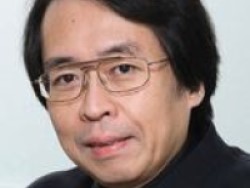 Akira Nishimura Mr. Nishimura was born in Osaka 1953. He studied composition and musical theory to post graduate level at Tokyo National University of Fine Arts and Music. In 1977 he won the first of his numerous later prize winnings at the Queen Elizabeth International Music Composition Competition with HETEROPHONY for string quartet (1975) and the Luigi Dallapiccola Composition Award with MUTAZIONI (1977). In 1980 KECAK (1979) was selected as the best work at the International Rostrum of Composers , and he won awards at the ISCM World Music Days with ODE for EKSTASIS (1981) in 1982, then in 1984, 1988 and 1990. The Otaka Prizes were awarded to him in 1988 for HETEROPHONY for two pianos and orchestra(1987), in 1992 for A RING OF LIGHTS, double concerto for violin, piano and orchestra, and in 1993 for INTO THE LIGHTS OF THE ETERNAL CHAOS. In 2001, he was awarded the ExxonMobil Music Prize and in 2004, the Suntory Music Award. He was composer-in-residence of the Orchestra Ensemble Kanazawa (1993-94) and of the Tokyo Symphony Orchestra (1994-97). Nishimura principally employs heterophony, a characteristic device of Asian traditional music, thereby subtly transforming the intervals, rhythm and melody of his dense multi-layered textures. Though similar to 'micropolyphony' of Ligeti, an Asian perspective informs his technique. Some works are heterophonic melodically, such as HETEROPHONY (1975), and some rhythmically, as in KECAK; the superimposition of trills, tremolos and harmonics contributes to the more complex textures of his later works. He has been commissioned from many overseas music festivals and ensembles such as ULTIMA Contemporary Music Festival Oslo, Octobre en Normandie, Arditti Quartet, Kronos Quartet, ELISION Ensemble, Hannover Society of Contemporary Music and so on. He is currently a Professor at the Tokyo College of Music and the Musical Director of the Izumi Sinfonietta Osaka, KUSATSU International Music Festival.
Akira Nishimura Mr. Nishimura was born in Osaka 1953. He studied composition and musical theory to post graduate level at Tokyo National University of Fine Arts and Music. In 1977 he won the first of his numerous later prize winnings at the Queen Elizabeth International Music Composition Competition with HETEROPHONY for string quartet (1975) and the Luigi Dallapiccola Composition Award with MUTAZIONI (1977). In 1980 KECAK (1979) was selected as the best work at the International Rostrum of Composers , and he won awards at the ISCM World Music Days with ODE for EKSTASIS (1981) in 1982, then in 1984, 1988 and 1990. The Otaka Prizes were awarded to him in 1988 for HETEROPHONY for two pianos and orchestra(1987), in 1992 for A RING OF LIGHTS, double concerto for violin, piano and orchestra, and in 1993 for INTO THE LIGHTS OF THE ETERNAL CHAOS. In 2001, he was awarded the ExxonMobil Music Prize and in 2004, the Suntory Music Award. He was composer-in-residence of the Orchestra Ensemble Kanazawa (1993-94) and of the Tokyo Symphony Orchestra (1994-97). Nishimura principally employs heterophony, a characteristic device of Asian traditional music, thereby subtly transforming the intervals, rhythm and melody of his dense multi-layered textures. Though similar to 'micropolyphony' of Ligeti, an Asian perspective informs his technique. Some works are heterophonic melodically, such as HETEROPHONY (1975), and some rhythmically, as in KECAK; the superimposition of trills, tremolos and harmonics contributes to the more complex textures of his later works. He has been commissioned from many overseas music festivals and ensembles such as ULTIMA Contemporary Music Festival Oslo, Octobre en Normandie, Arditti Quartet, Kronos Quartet, ELISION Ensemble, Hannover Society of Contemporary Music and so on. He is currently a Professor at the Tokyo College of Music and the Musical Director of the Izumi Sinfonietta Osaka, KUSATSU International Music Festival. -
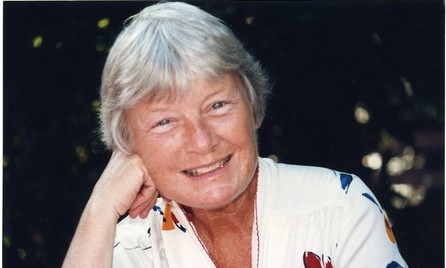 Emma Lou Diemer Emma Lou Diemer was born in Kansas City, Missouri, on November 24, 1927. Her father, George Willis Diemer, was an educator (college president); her mother, Myrtle Casebolt Diemer, was a church worker and homemaker. Her sister, Dorothy Diemer Hendry, was an educator, poet, writer, musician (married to Col. Wickliffe B. Hendry; their children are Betty Augsburger, Terri Sims, Alan Hendry, Bonny Gierhart). Her brothers were George W. Diemer II, an educator, Marine fighter pilot, musician, and John Irving Diemer educator, musician (his children are George W. Diemer III, René Krey, Jack Diemer, Dee Dee Diemer). Emma Lou played the piano and composed at a very early age and became organist in her church at age 13. Her great interest in composing music continued through College High School in Warrensburg, MO, and she majored in composition at the Yale Music School (BM, 1949; MM, 1950) and at the Eastman School of Music (Ph.D, 1960). She studied in Brussels, Belgium on a Fulbright Scholarship and spent two summers of composition study at the Berkshire Music Center. She taught in several colleges and was organist at several churches in the Kansas City area during the 1950s. From 1959-61 she was composer-in-residence in the Arlington, VA schools under the Ford Foundation Young Composers Project, and composed many choral and instrumental works for the schools, a number of which are still in publication. She was consultant for the MENC Contemporary Music Project before joining the faculty of the University of Maryland where she taught composition and theory from 1965-70. In 1971 she moved from the East Coast to teach composition and theory at the University of California, Santa Barbara. At UCSB she was instrumental in founding the electronic/computer music program. In 1991 she became Professor Emeritus at UCSB. Through the years she has fulfilled many commissions (orchestral, chamber ensemble, keyboard, choral, vocal) from schools, churches, and professional organizations. Most of her works are published. She has received awards from Yale University (Certificate of Merit), The Eastman School of Music (Edward Benjamin Award), the National Endowment for the Arts (electronic music project), Mu Phi Epsilon (Certificate of Merit), the Kennedy Center Friedheim Awards (for piano concerto), the American Guild of Organists (Composer of the Year), the American Society of Composers, Authors, and Publishers/ASCAP (annually since 1962 for performances and publications), the Santa Barbara Symphony (composer-in-residence, 1990-92), the University of Central Missouri (honorary doctorate), and many others. She is an active keyboard performer (piano, organ, harpsichord, synthesizer), and in the last few years has given concerts of her own music at Washington National Cathedral, St. Mary's Cathedral and Grace Cathedral in San Francisco, Cathedral of Our Lady of the Angels in Los Angeles, and elsewhere. In 2012 she wrote two works for violinist Philip Ficsor: Concerto for Violin (A Little Parlour Music, Remembrance of Things Past, Santa Barbara Rag) that he premiered October 19, 2012 with the Westmont College Orchestra under Michael Shasberger in Hahn Hall at the Music Academy of the West in Santa Barbara. And a light piece for violin and organ: "Holiday Madness Medley" tlhat he and Diemer premiered at the SB Music Club at First Congregational Church, SB on December 1, 2012. These works will eventually be published. Along with a new work titled "Going Away" they were recorded by Philip Ficsor and Diemer on the album Going Away. Emma Lou lives in Santa Barbara, California, five minutes from the Pacific Ocean.
Emma Lou Diemer Emma Lou Diemer was born in Kansas City, Missouri, on November 24, 1927. Her father, George Willis Diemer, was an educator (college president); her mother, Myrtle Casebolt Diemer, was a church worker and homemaker. Her sister, Dorothy Diemer Hendry, was an educator, poet, writer, musician (married to Col. Wickliffe B. Hendry; their children are Betty Augsburger, Terri Sims, Alan Hendry, Bonny Gierhart). Her brothers were George W. Diemer II, an educator, Marine fighter pilot, musician, and John Irving Diemer educator, musician (his children are George W. Diemer III, René Krey, Jack Diemer, Dee Dee Diemer). Emma Lou played the piano and composed at a very early age and became organist in her church at age 13. Her great interest in composing music continued through College High School in Warrensburg, MO, and she majored in composition at the Yale Music School (BM, 1949; MM, 1950) and at the Eastman School of Music (Ph.D, 1960). She studied in Brussels, Belgium on a Fulbright Scholarship and spent two summers of composition study at the Berkshire Music Center. She taught in several colleges and was organist at several churches in the Kansas City area during the 1950s. From 1959-61 she was composer-in-residence in the Arlington, VA schools under the Ford Foundation Young Composers Project, and composed many choral and instrumental works for the schools, a number of which are still in publication. She was consultant for the MENC Contemporary Music Project before joining the faculty of the University of Maryland where she taught composition and theory from 1965-70. In 1971 she moved from the East Coast to teach composition and theory at the University of California, Santa Barbara. At UCSB she was instrumental in founding the electronic/computer music program. In 1991 she became Professor Emeritus at UCSB. Through the years she has fulfilled many commissions (orchestral, chamber ensemble, keyboard, choral, vocal) from schools, churches, and professional organizations. Most of her works are published. She has received awards from Yale University (Certificate of Merit), The Eastman School of Music (Edward Benjamin Award), the National Endowment for the Arts (electronic music project), Mu Phi Epsilon (Certificate of Merit), the Kennedy Center Friedheim Awards (for piano concerto), the American Guild of Organists (Composer of the Year), the American Society of Composers, Authors, and Publishers/ASCAP (annually since 1962 for performances and publications), the Santa Barbara Symphony (composer-in-residence, 1990-92), the University of Central Missouri (honorary doctorate), and many others. She is an active keyboard performer (piano, organ, harpsichord, synthesizer), and in the last few years has given concerts of her own music at Washington National Cathedral, St. Mary's Cathedral and Grace Cathedral in San Francisco, Cathedral of Our Lady of the Angels in Los Angeles, and elsewhere. In 2012 she wrote two works for violinist Philip Ficsor: Concerto for Violin (A Little Parlour Music, Remembrance of Things Past, Santa Barbara Rag) that he premiered October 19, 2012 with the Westmont College Orchestra under Michael Shasberger in Hahn Hall at the Music Academy of the West in Santa Barbara. And a light piece for violin and organ: "Holiday Madness Medley" tlhat he and Diemer premiered at the SB Music Club at First Congregational Church, SB on December 1, 2012. These works will eventually be published. Along with a new work titled "Going Away" they were recorded by Philip Ficsor and Diemer on the album Going Away. Emma Lou lives in Santa Barbara, California, five minutes from the Pacific Ocean. -
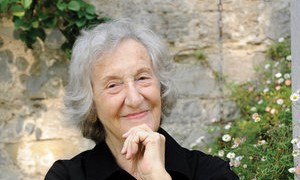 Thea Musgrave Thea Musgrave (b.1928), composer of over a dozen operas, began her studies in Edinburgh and in 1950 went to Paris to study with Nadia Boulanger. While still at the Paris Conservatoire her music began attract attention in her native Scotland. By the mid-sixties she was a much-respected and widely-commissioned composer in the UK, conducting many of her own works. In 1972, Musgrave moved with her husband, the violist and conductor Peter Mark, to Virginia, USA where he was invited to set up the Virginia Opera. From there her career as an opera composer took off, and in 1977 Scottish Opera premiered her watershed grand opera "Mary, Queen of Scots." During the late sixties- early seventies, Musgrave began working on group of works which sought to elevate the inherent drama of the concerto form, extending the conventional boundaries of instrumental performance by directing players in their physical movement around the performance space. While instruments took on a ‘character’ in doing so, such early works were by no means programmatic, and soon after were referred to by the composer as being examples of ‘dramatic-abstract’. In recent years her musical style has developed into something more lyric and immediate, but certainly no less inventive, dramatic or unique. With over 160 mature works to date for choir, orchestra, chamber ensemble and the stage, Musgrave remains a respected voice in composition, having been commissioned by some of the world’s finest companies such as the Royal Opera House, The BBC Orchestrs and Choirs, and the Boston Symphony Orchestra.
Thea Musgrave Thea Musgrave (b.1928), composer of over a dozen operas, began her studies in Edinburgh and in 1950 went to Paris to study with Nadia Boulanger. While still at the Paris Conservatoire her music began attract attention in her native Scotland. By the mid-sixties she was a much-respected and widely-commissioned composer in the UK, conducting many of her own works. In 1972, Musgrave moved with her husband, the violist and conductor Peter Mark, to Virginia, USA where he was invited to set up the Virginia Opera. From there her career as an opera composer took off, and in 1977 Scottish Opera premiered her watershed grand opera "Mary, Queen of Scots." During the late sixties- early seventies, Musgrave began working on group of works which sought to elevate the inherent drama of the concerto form, extending the conventional boundaries of instrumental performance by directing players in their physical movement around the performance space. While instruments took on a ‘character’ in doing so, such early works were by no means programmatic, and soon after were referred to by the composer as being examples of ‘dramatic-abstract’. In recent years her musical style has developed into something more lyric and immediate, but certainly no less inventive, dramatic or unique. With over 160 mature works to date for choir, orchestra, chamber ensemble and the stage, Musgrave remains a respected voice in composition, having been commissioned by some of the world’s finest companies such as the Royal Opera House, The BBC Orchestrs and Choirs, and the Boston Symphony Orchestra. -
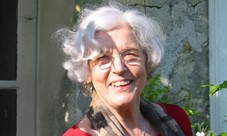 Betsy Jolas Betsy JOLAS, born in Paris in 1926, is the daughter of translator Maria Jolas and poet and journalist Eugène Jolas, founder of the well-known literary magazine "transition", in which the "Finnegans Wake" of James Joyce was published under the heading "work in progress". She came to the U.S. in 1940, completed her general schooling, then started studying composition with Paul Boepple, piano with Helen Schnabel and organ with Carl Weinrich. After graduating from Bennington College, Betsy Jolas returned to Paris in 1946 to continue her studies with Darius Milhaud, Simone Plé-Caussade and Olivier Messiaen at the Conservatoire National Supérieur de Musique of Paris. Prize winner of the International Conducting Competition of Besançon (1953), she has since won many awards, including Copley Foundation of Chicago (1954), ORTF (1961), American Academy of Arts (1973), Koussevitsky Fondation (1974), Grand Prix National de la Musique (1974), Grand Prix de la Ville de Paris (1981), Grand Prix de la SACEM (1982). Betsy Jolas became a member of the American Academy of Arts and Letters in 1983. She has also taught at Tanglewood, Yale, Harvard, Mills College (Darius Milhaud chair), Berkeley, USC and San Diego University, to name a few .Her works, written for a great variety of combinations, have been widely performed throughout the world by first class artists such as Elisabeth Chojnacka, Kent Nagano, William Christie, Claude Helffer, Kim Kashkashian, and by leading groups: The Boston Symphony Chamber Players, the Concord Quartet, the Domaine Musical, the Percussions de Strasbourg, the Lincoln Center Chamber Music Society, the London Sinfonietta, the Ensemble Intercontemporain, the Philharmonia, etc. Twelve of her works have been recorded for EMI, Adès, CRI, Erato, Barclay, several of which have been the recipients of grand prize gramophone awards.
Betsy Jolas Betsy JOLAS, born in Paris in 1926, is the daughter of translator Maria Jolas and poet and journalist Eugène Jolas, founder of the well-known literary magazine "transition", in which the "Finnegans Wake" of James Joyce was published under the heading "work in progress". She came to the U.S. in 1940, completed her general schooling, then started studying composition with Paul Boepple, piano with Helen Schnabel and organ with Carl Weinrich. After graduating from Bennington College, Betsy Jolas returned to Paris in 1946 to continue her studies with Darius Milhaud, Simone Plé-Caussade and Olivier Messiaen at the Conservatoire National Supérieur de Musique of Paris. Prize winner of the International Conducting Competition of Besançon (1953), she has since won many awards, including Copley Foundation of Chicago (1954), ORTF (1961), American Academy of Arts (1973), Koussevitsky Fondation (1974), Grand Prix National de la Musique (1974), Grand Prix de la Ville de Paris (1981), Grand Prix de la SACEM (1982). Betsy Jolas became a member of the American Academy of Arts and Letters in 1983. She has also taught at Tanglewood, Yale, Harvard, Mills College (Darius Milhaud chair), Berkeley, USC and San Diego University, to name a few .Her works, written for a great variety of combinations, have been widely performed throughout the world by first class artists such as Elisabeth Chojnacka, Kent Nagano, William Christie, Claude Helffer, Kim Kashkashian, and by leading groups: The Boston Symphony Chamber Players, the Concord Quartet, the Domaine Musical, the Percussions de Strasbourg, the Lincoln Center Chamber Music Society, the London Sinfonietta, the Ensemble Intercontemporain, the Philharmonia, etc. Twelve of her works have been recorded for EMI, Adès, CRI, Erato, Barclay, several of which have been the recipients of grand prize gramophone awards. -
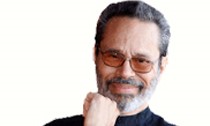 Leo Brouwer Composer, guitarist and music director, Leo Brouwer was born in Havana, Cuba in 1939. He studied with Isaac Nicola, Pujol's pupil and specialising in composition, completed his studies at the Julliard School of Music and at Hartt College of Music.In 1987 Brouwer was selected, along with Isaac Stern and Alan Danielou, to be honourable member of UNESCO in recognition for his music career - an honour that he shares with Menuhin, Shankar, Karajan, Sutherland and other musical luminaries. His latest concerto for guitar is his DOUBLE CONCERTO (Book of Signs), premiered by John Williams and Costas Cotsiolis on 27th January 2004 at the Megaron in Athens.
Leo Brouwer Composer, guitarist and music director, Leo Brouwer was born in Havana, Cuba in 1939. He studied with Isaac Nicola, Pujol's pupil and specialising in composition, completed his studies at the Julliard School of Music and at Hartt College of Music.In 1987 Brouwer was selected, along with Isaac Stern and Alan Danielou, to be honourable member of UNESCO in recognition for his music career - an honour that he shares with Menuhin, Shankar, Karajan, Sutherland and other musical luminaries. His latest concerto for guitar is his DOUBLE CONCERTO (Book of Signs), premiered by John Williams and Costas Cotsiolis on 27th January 2004 at the Megaron in Athens.
